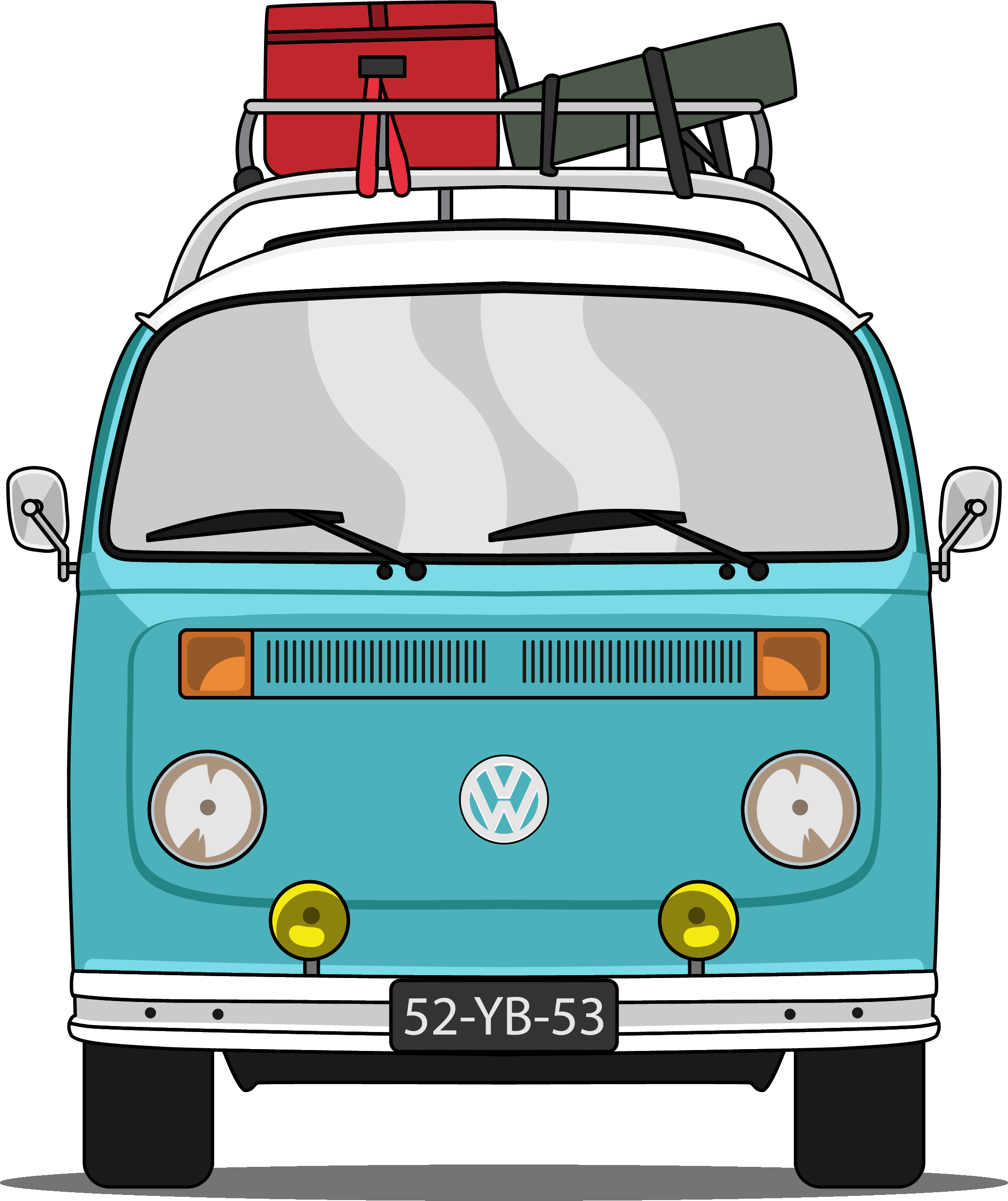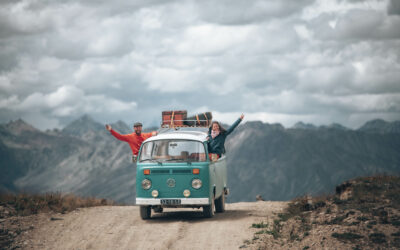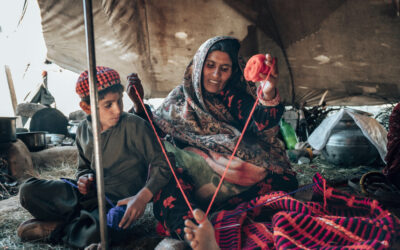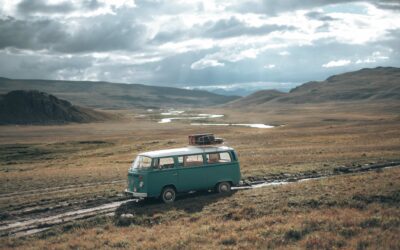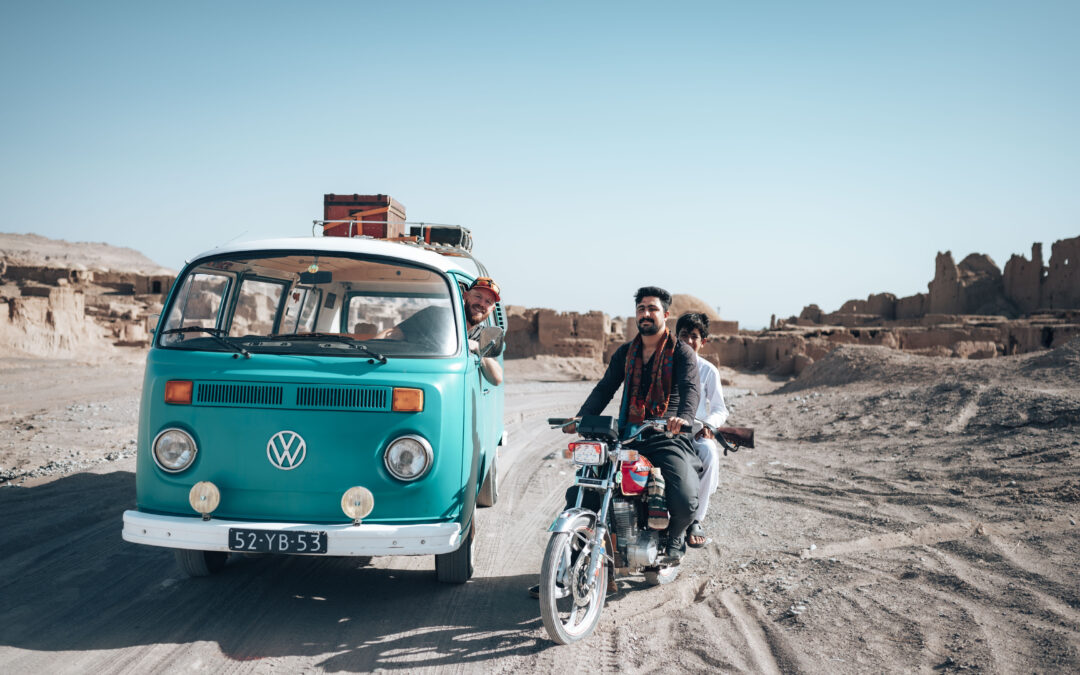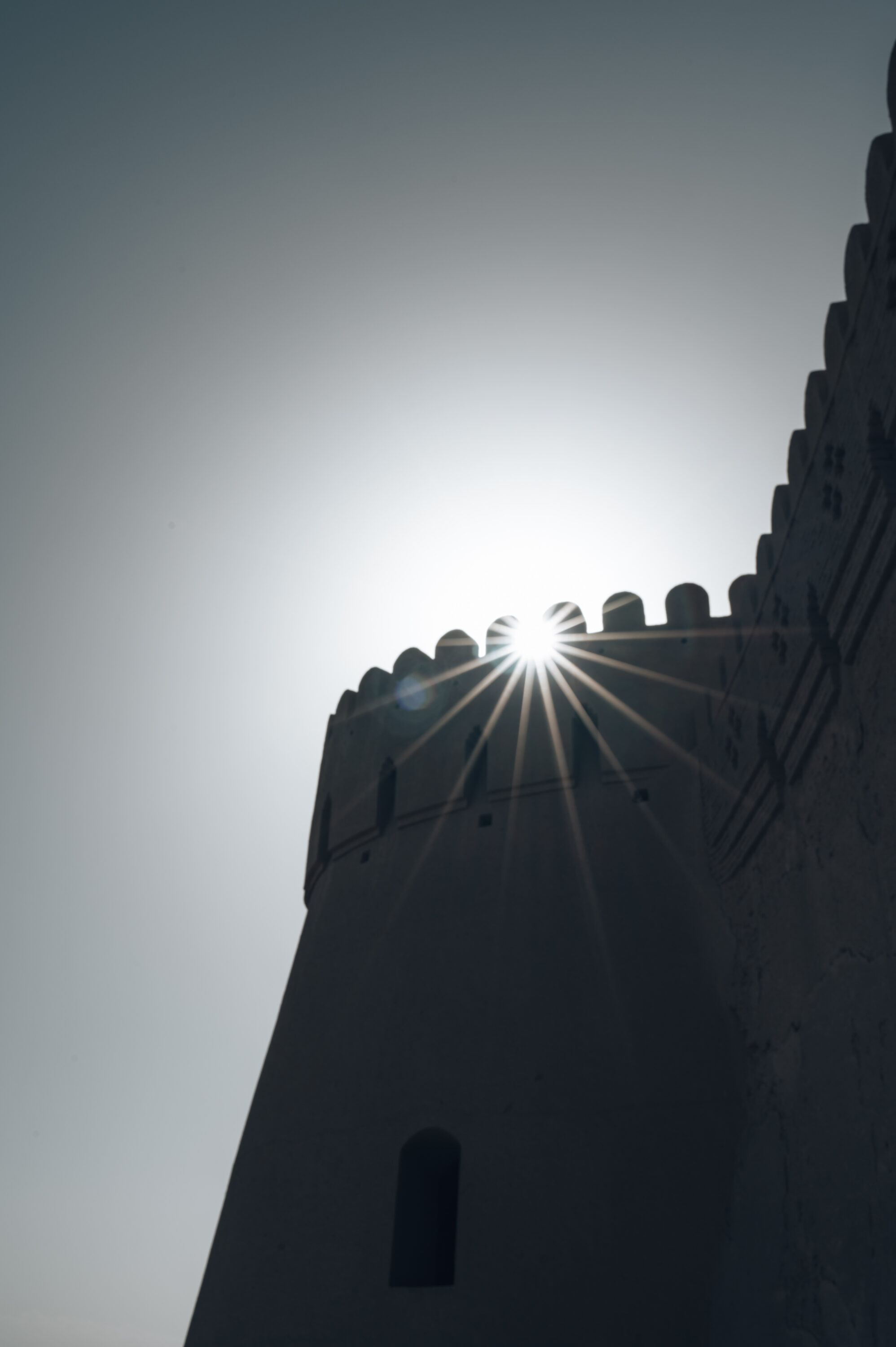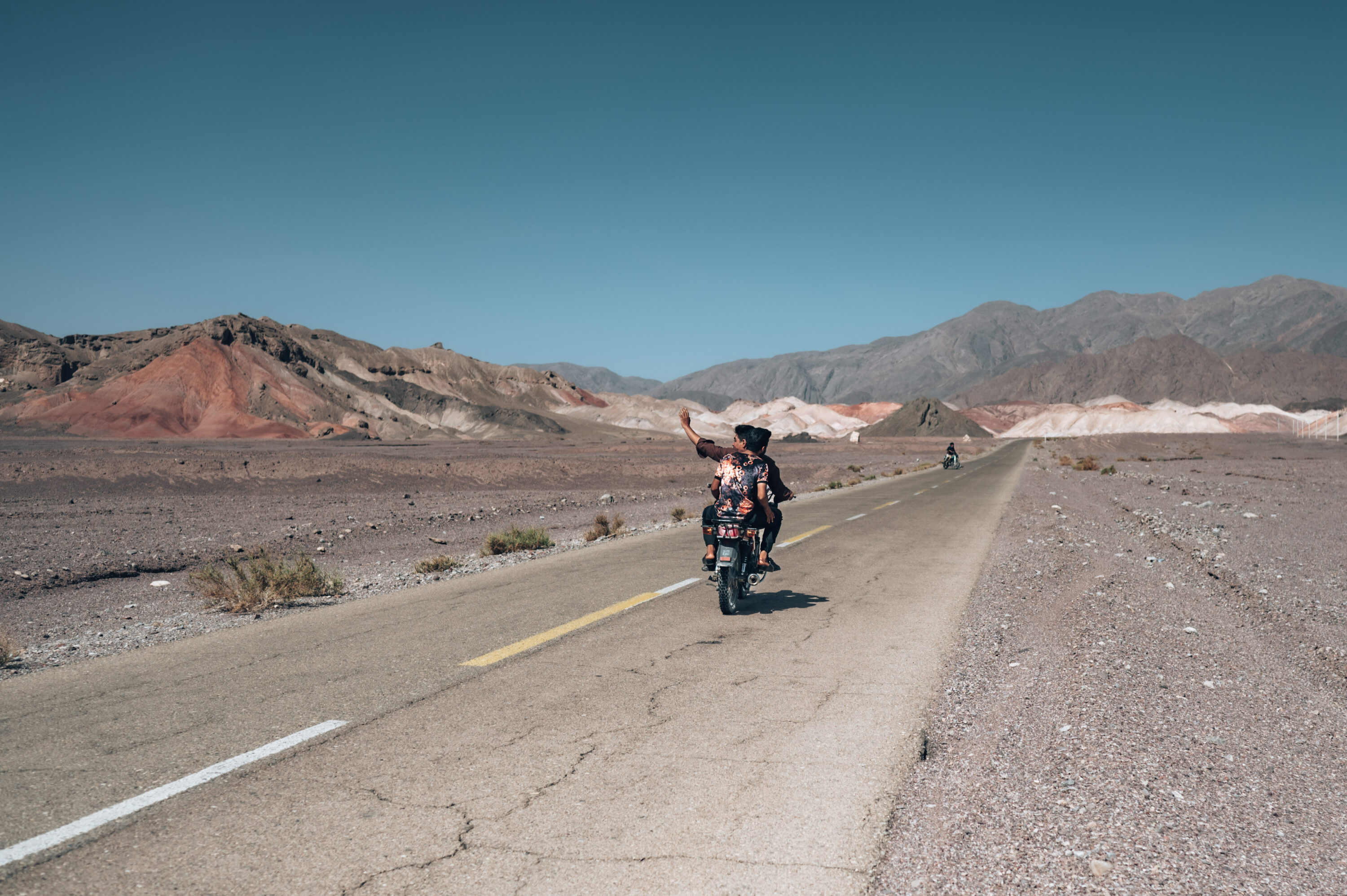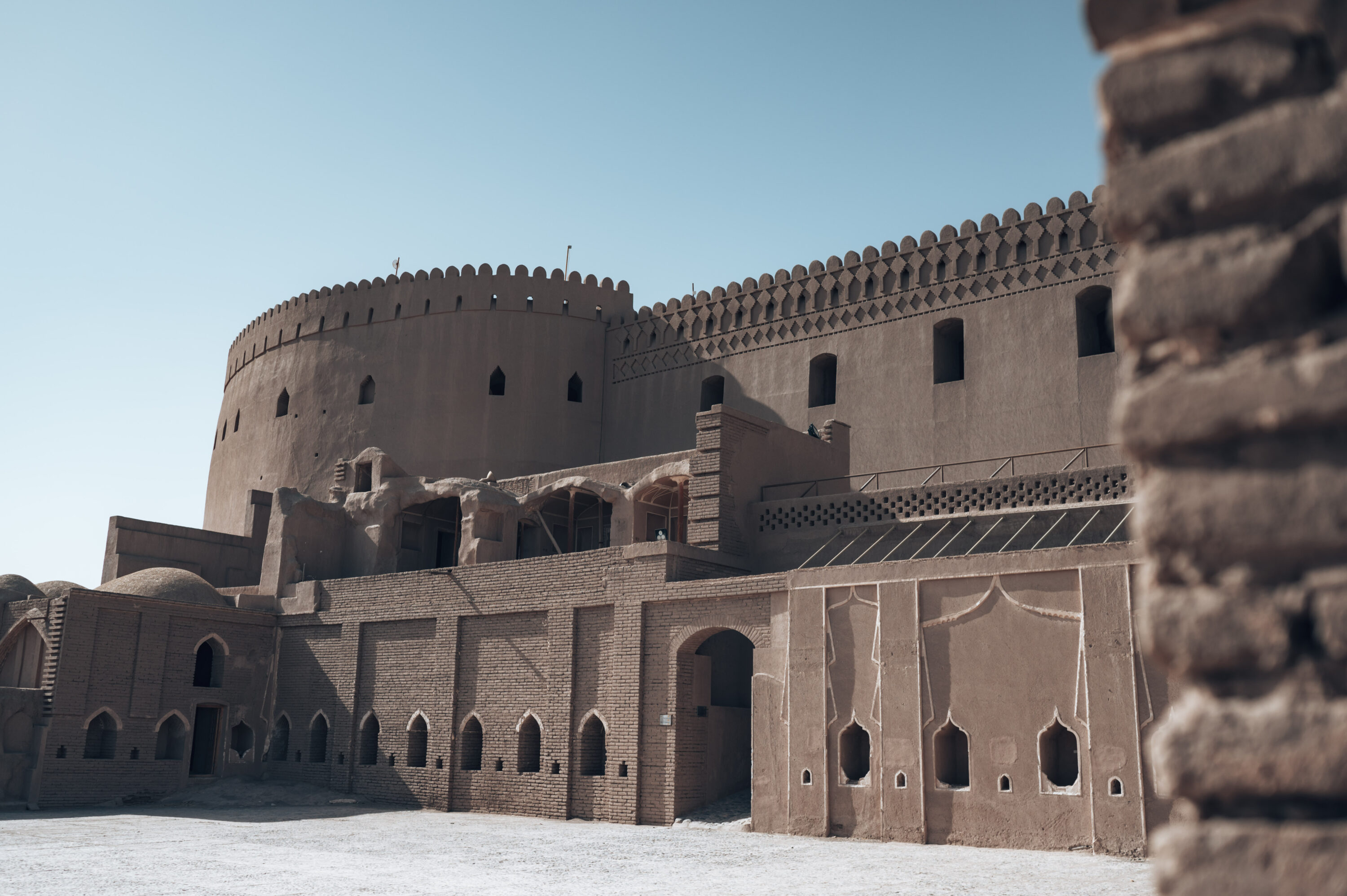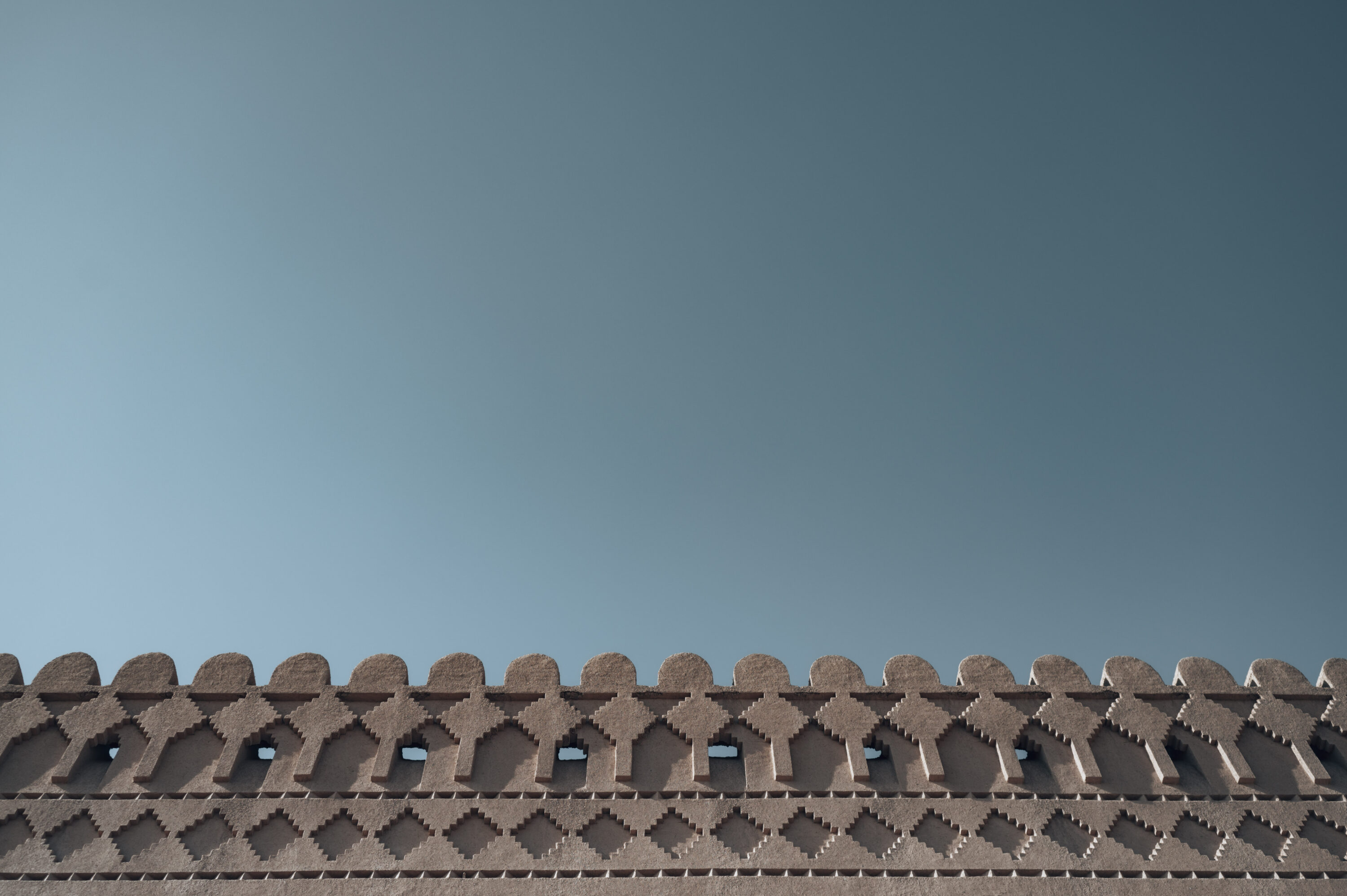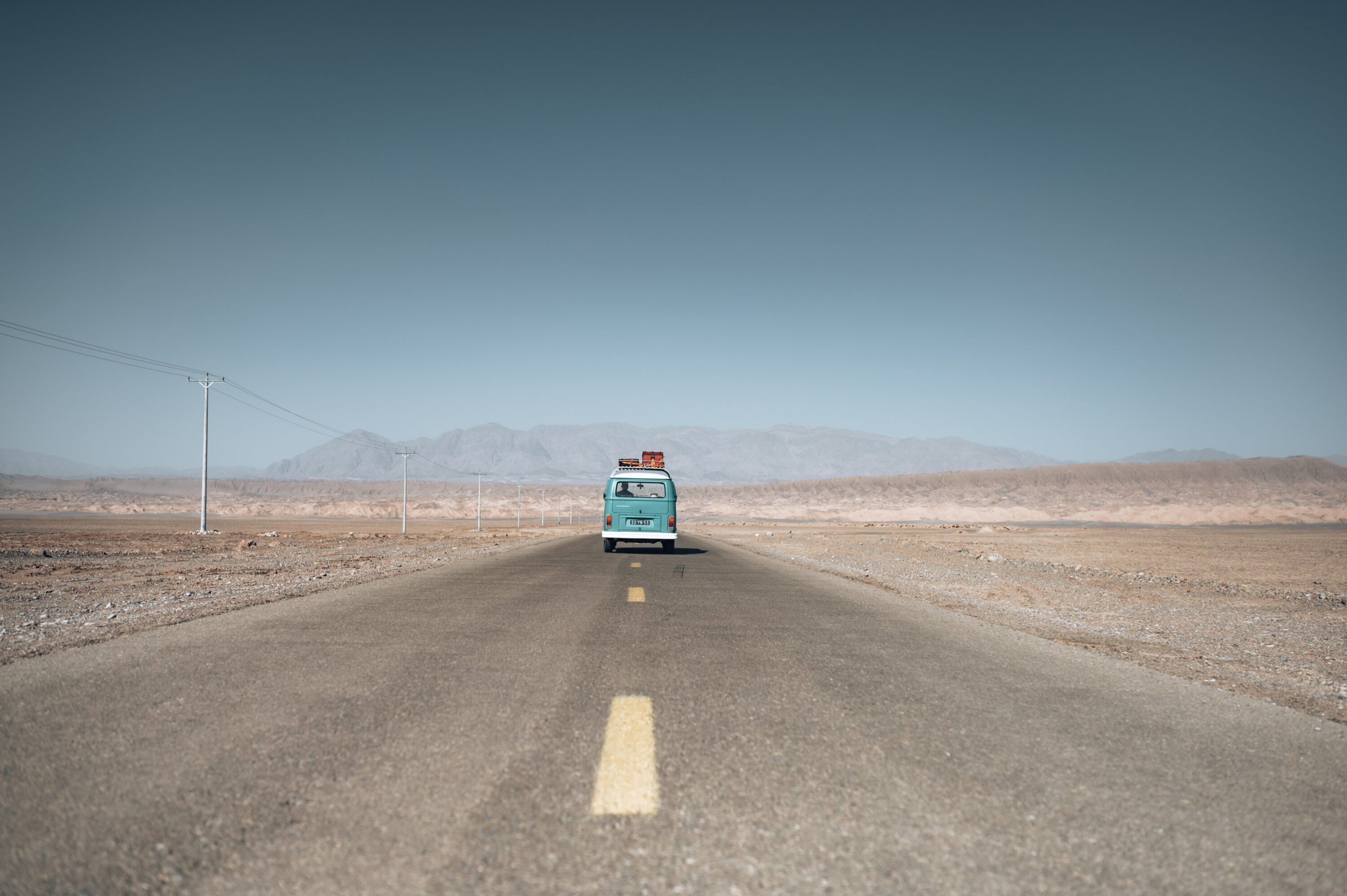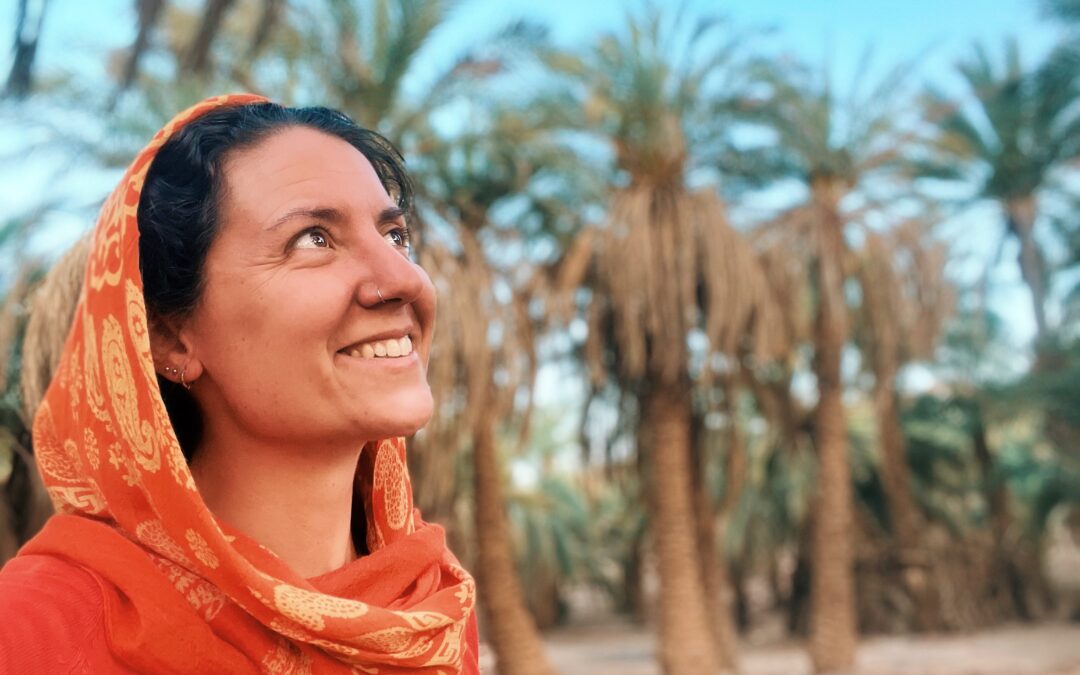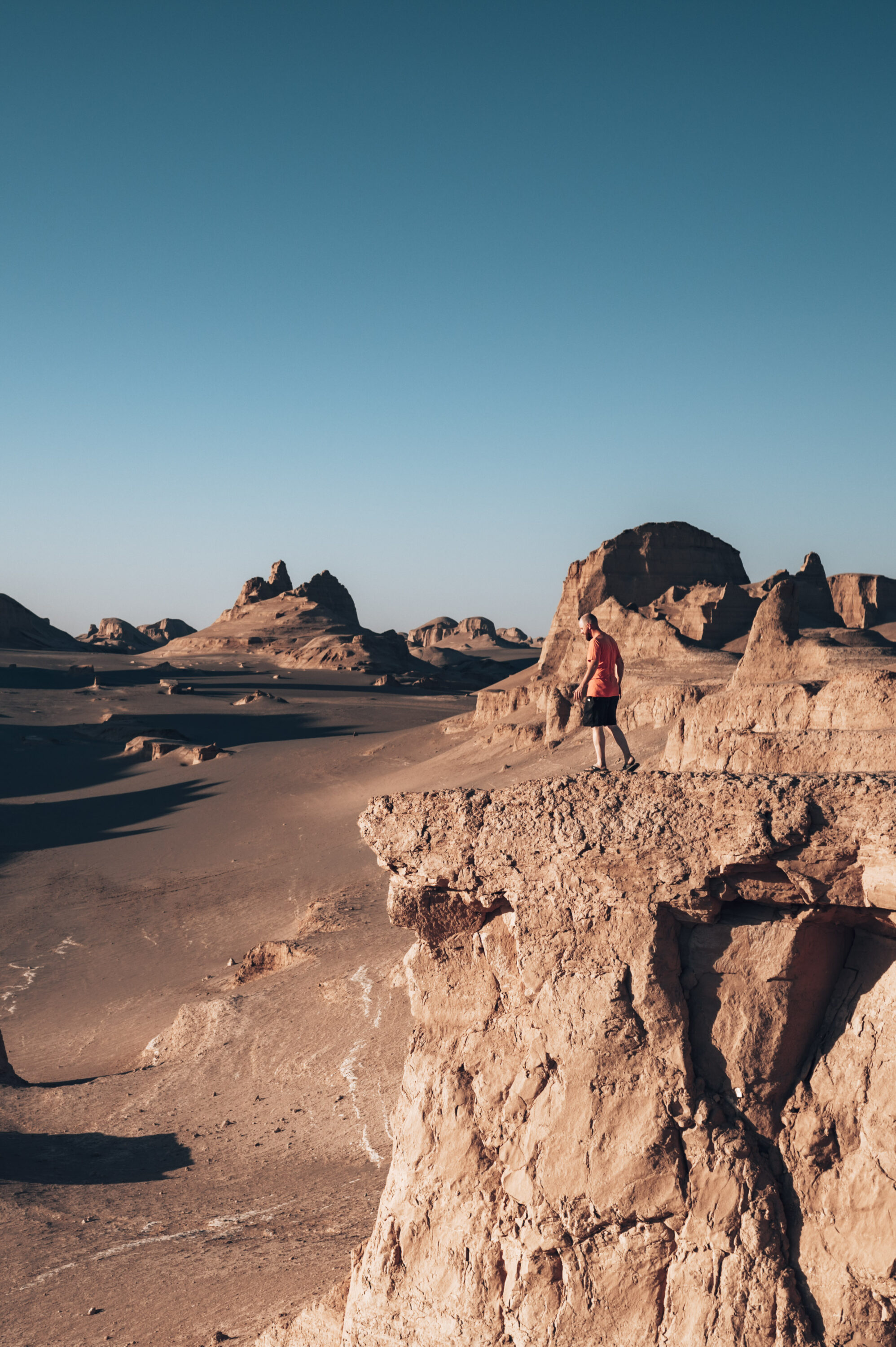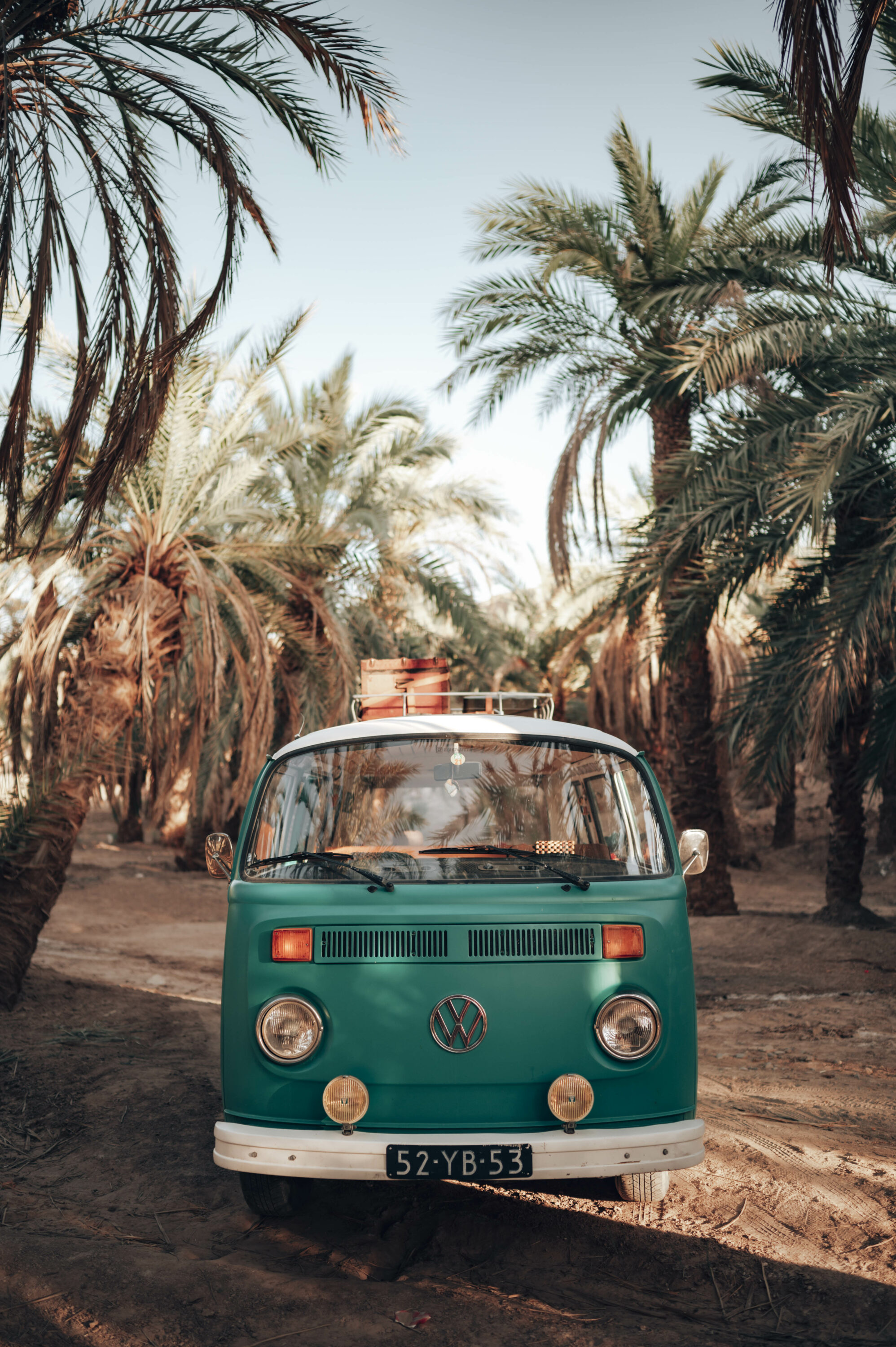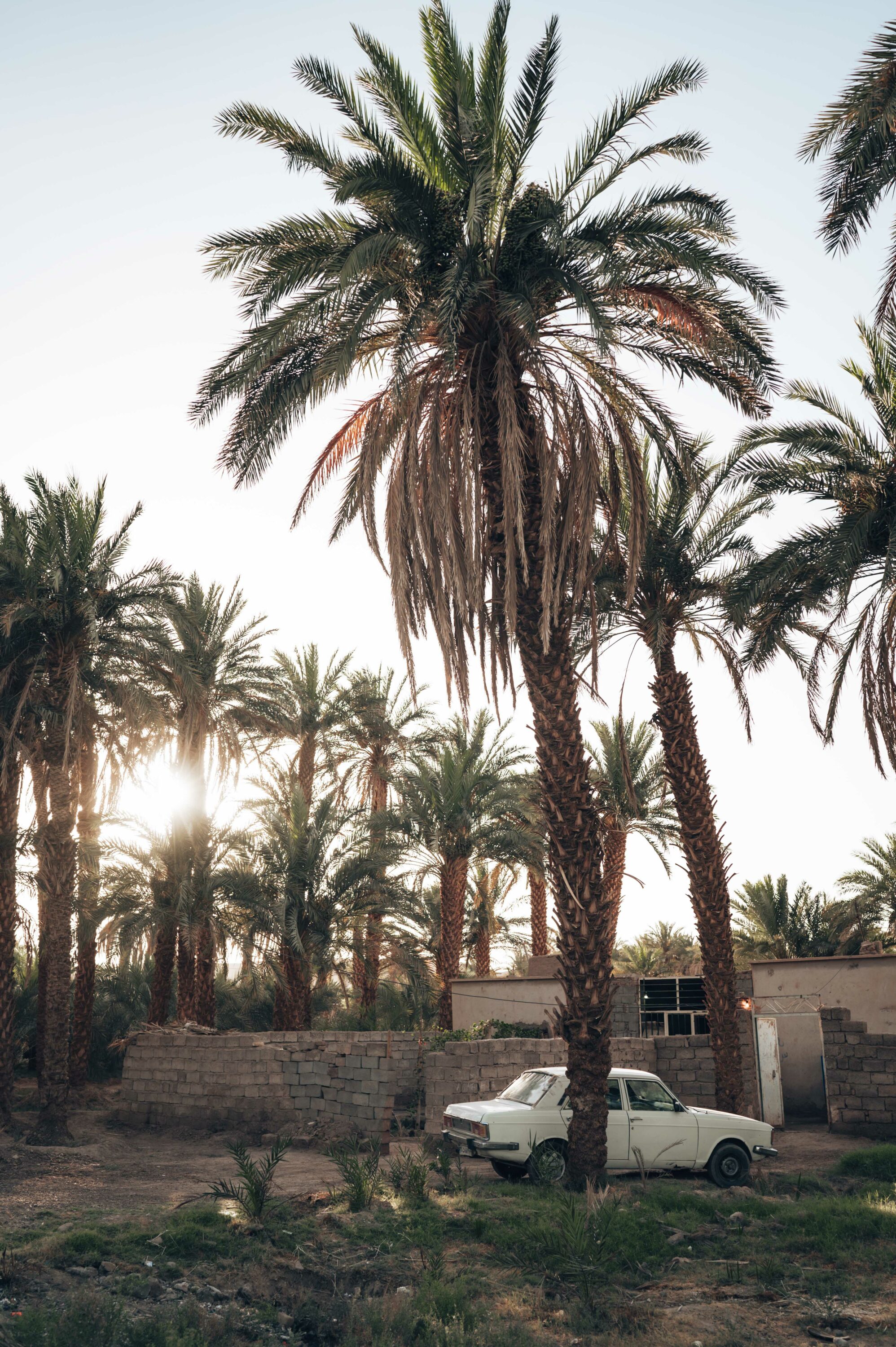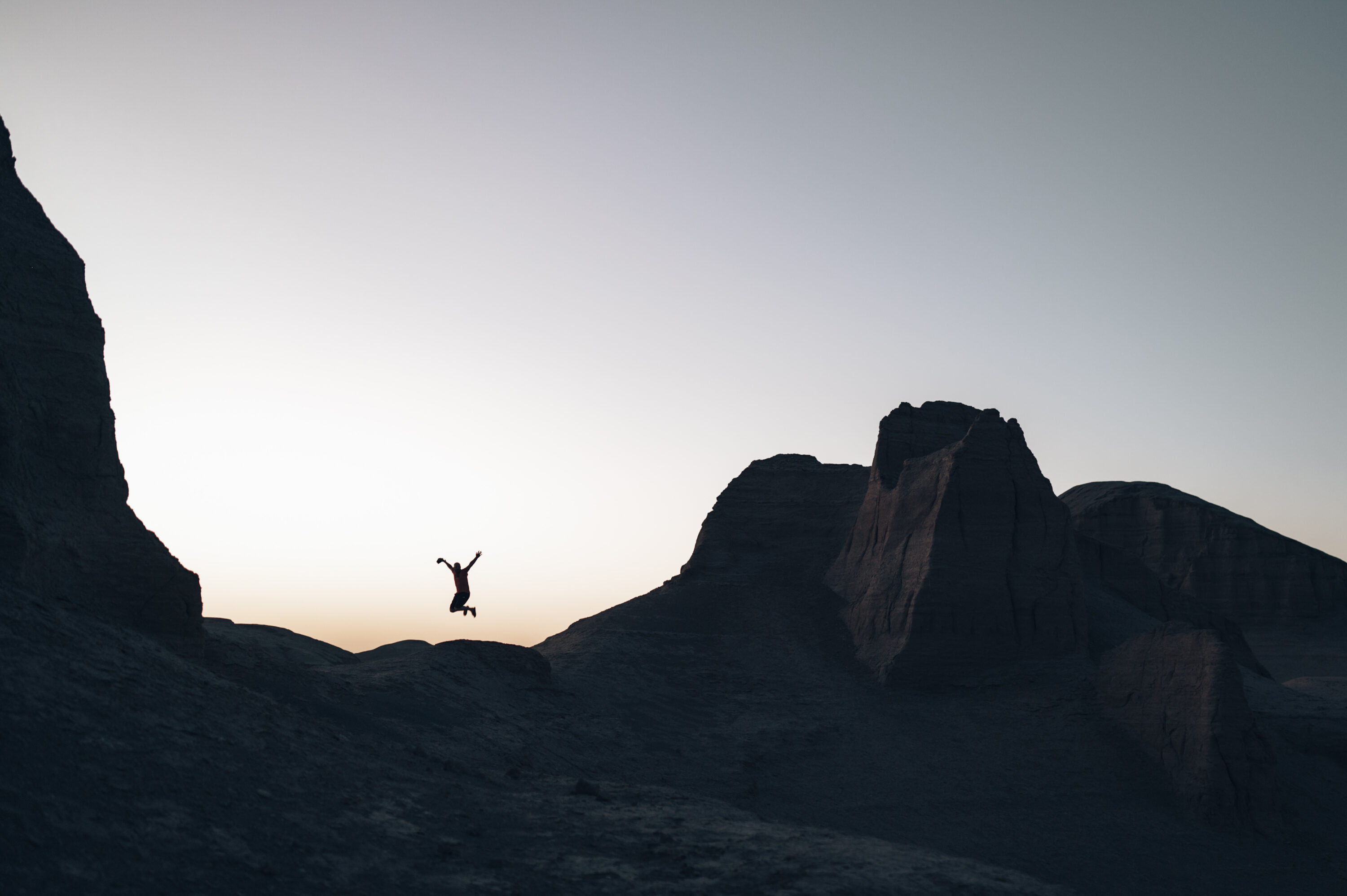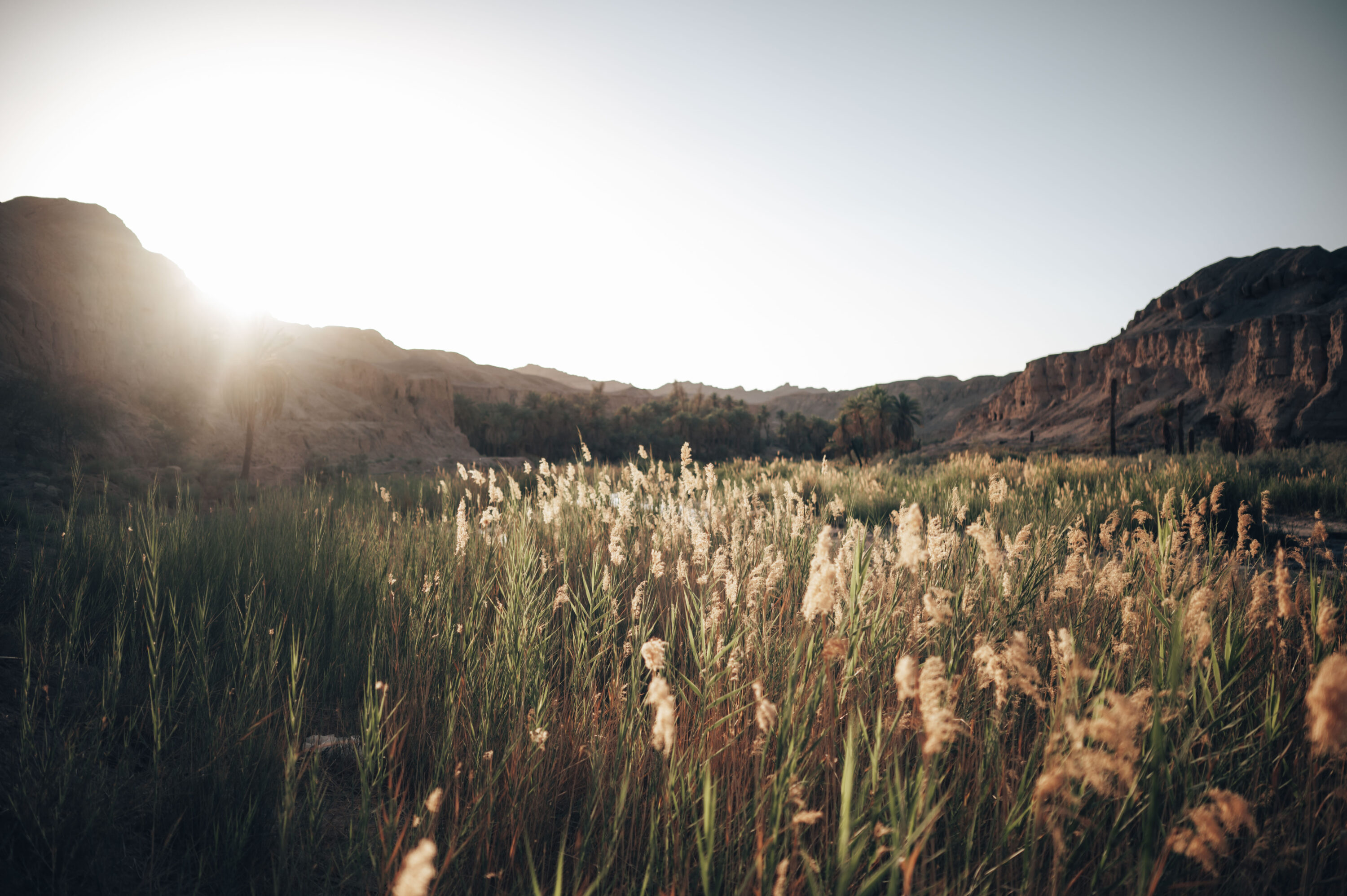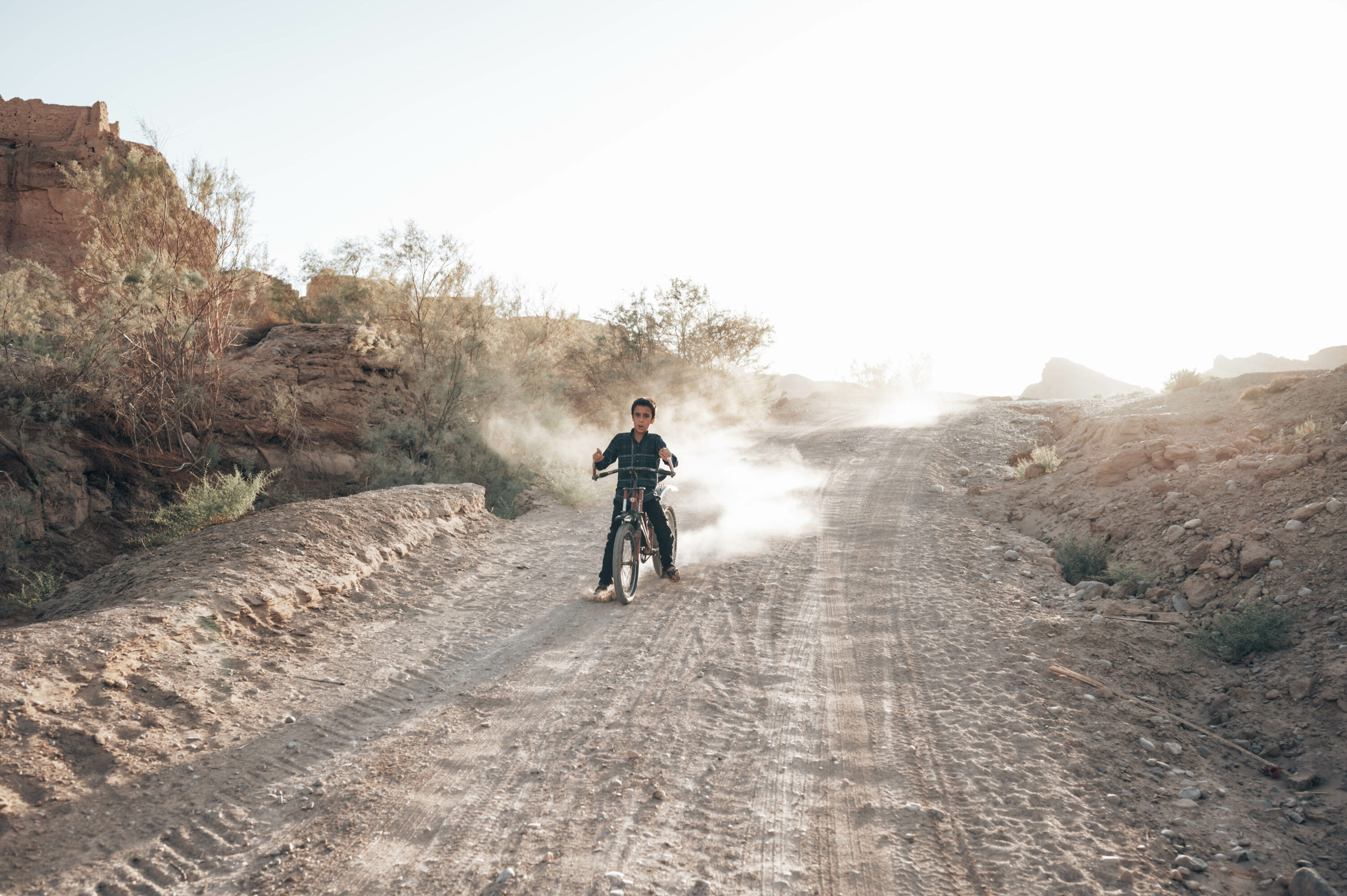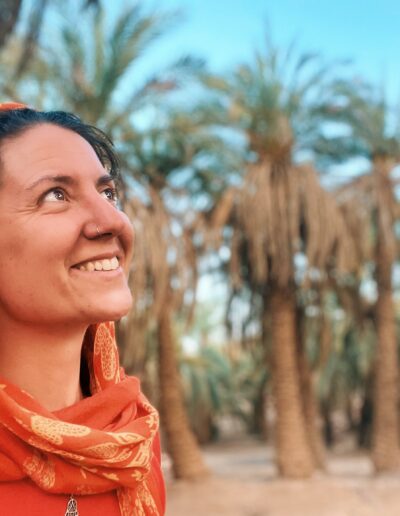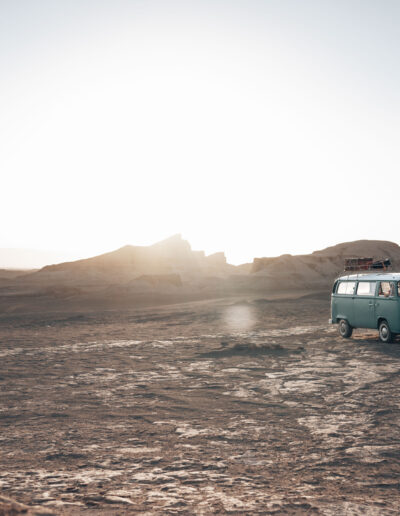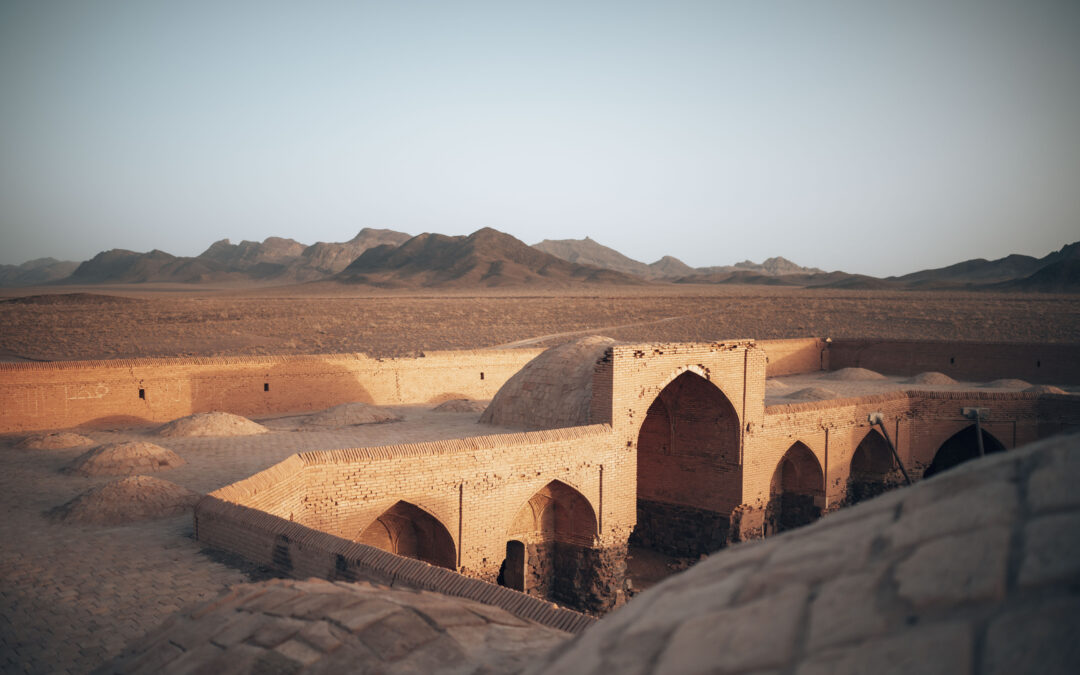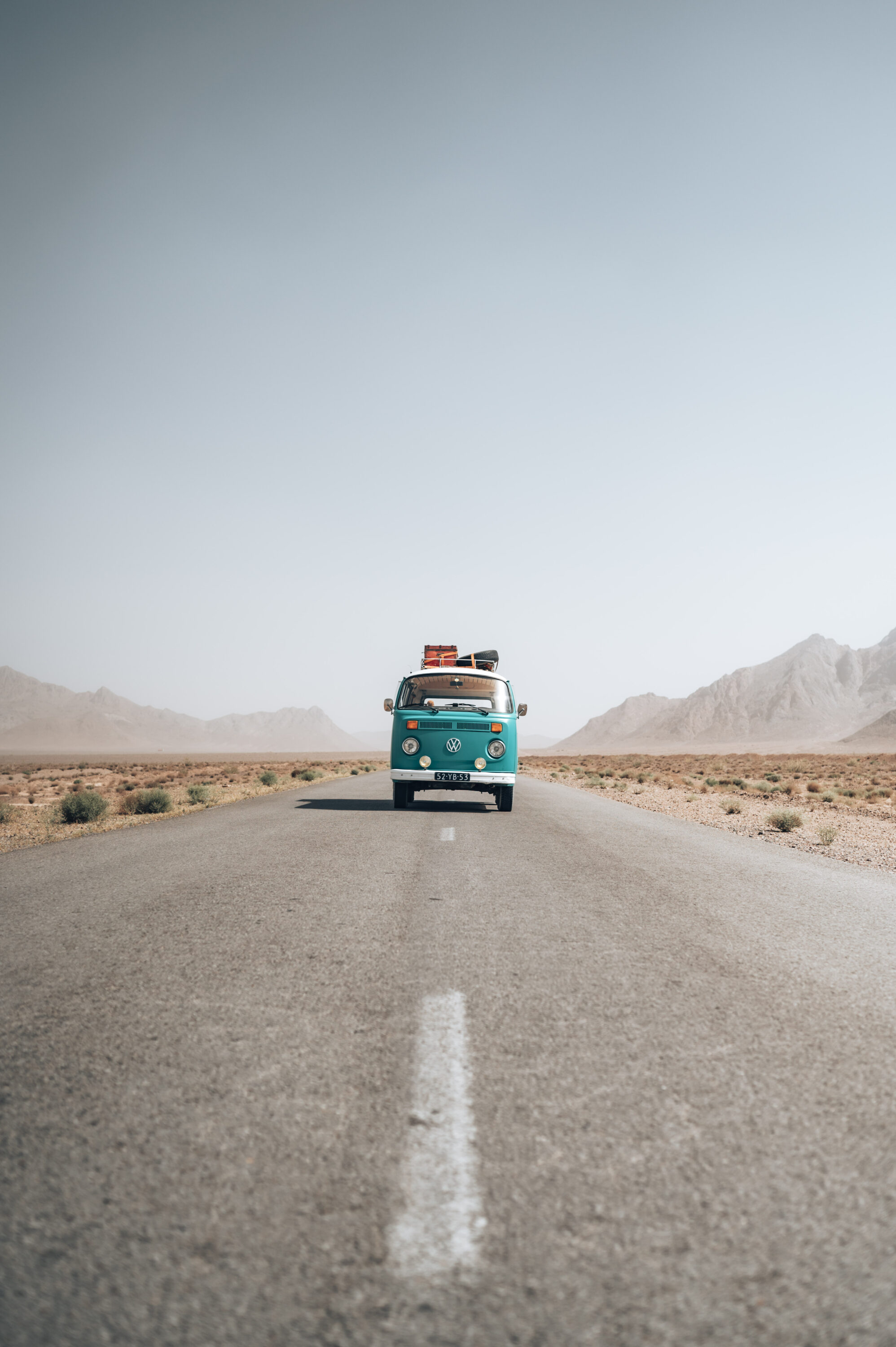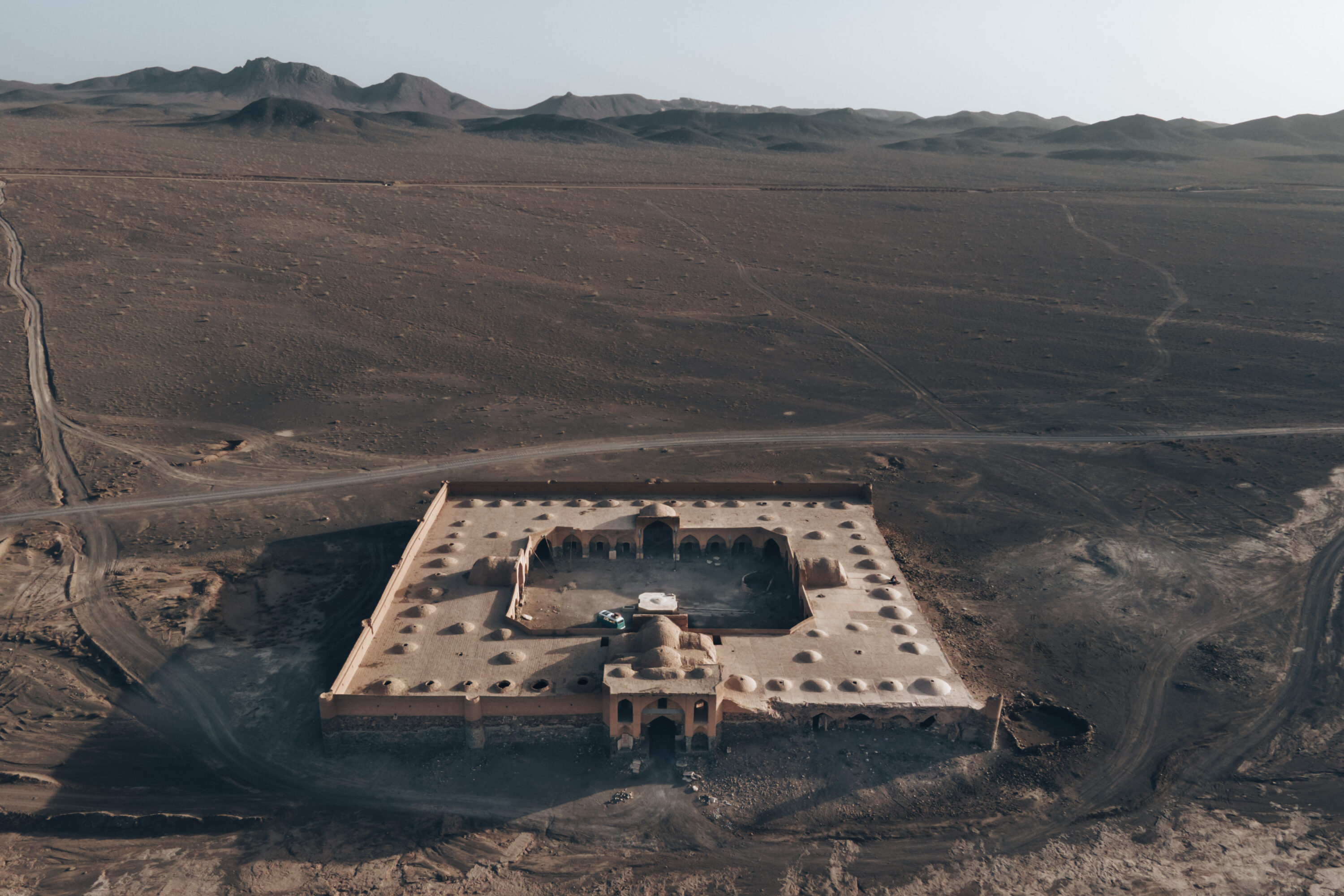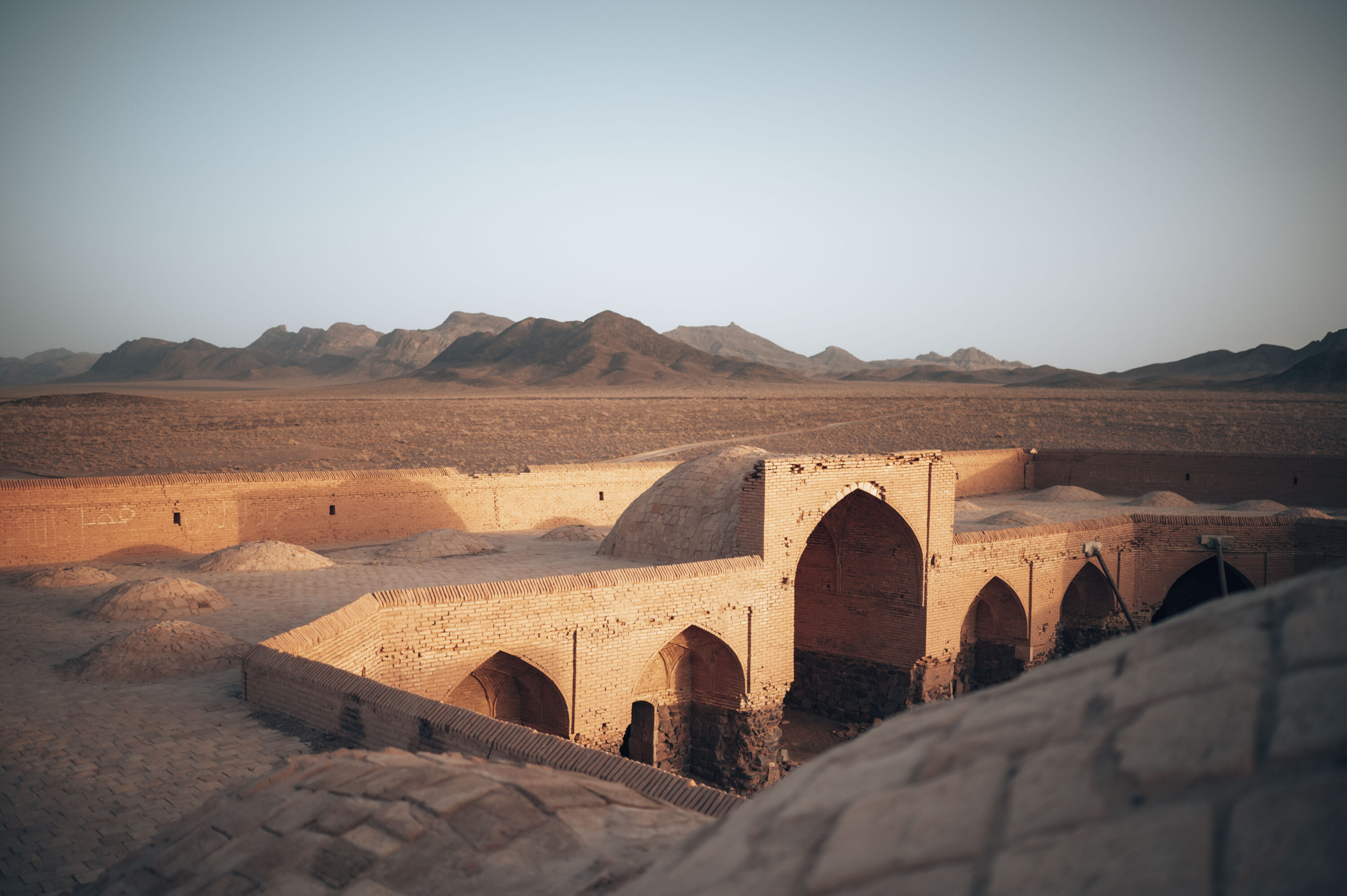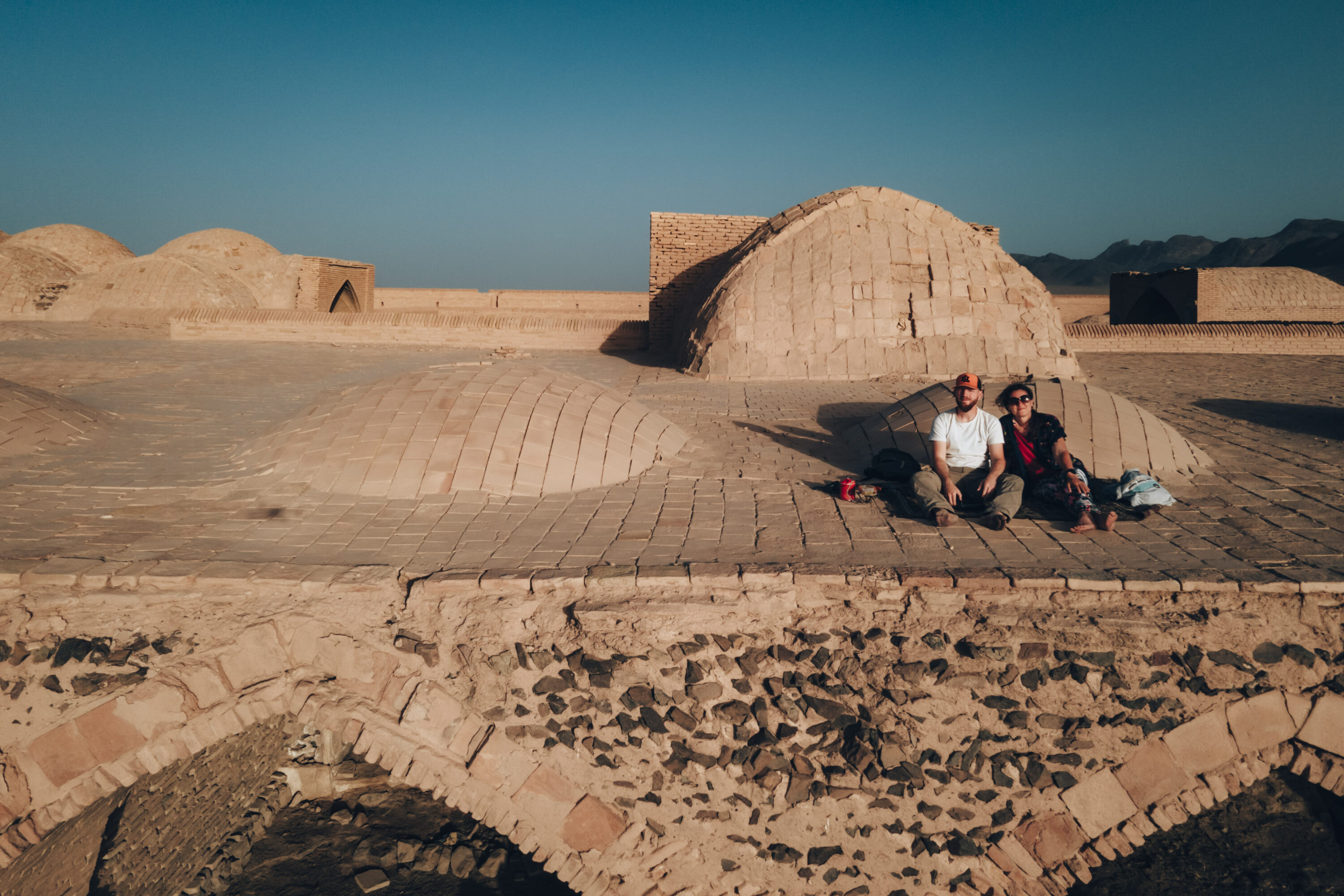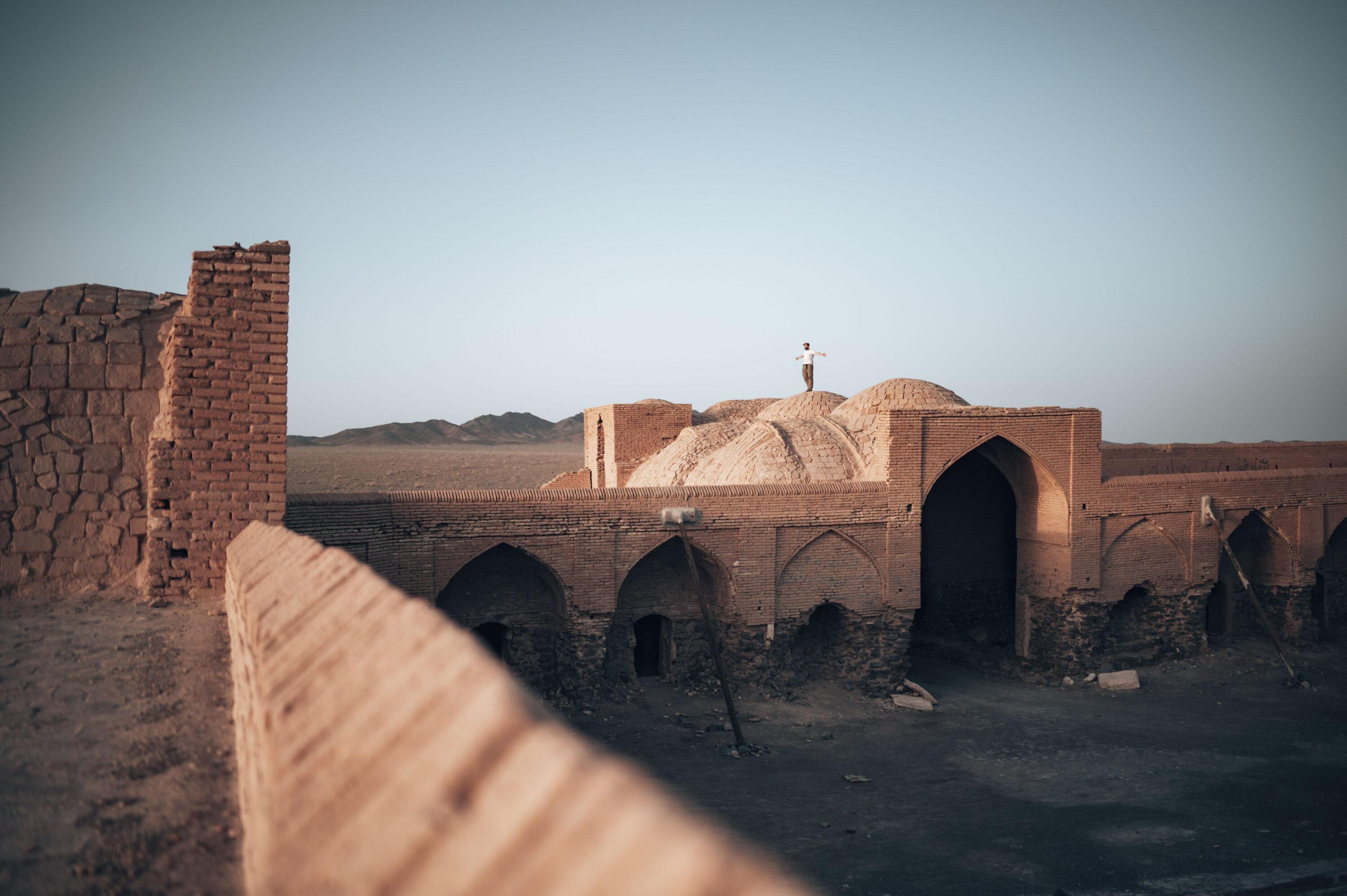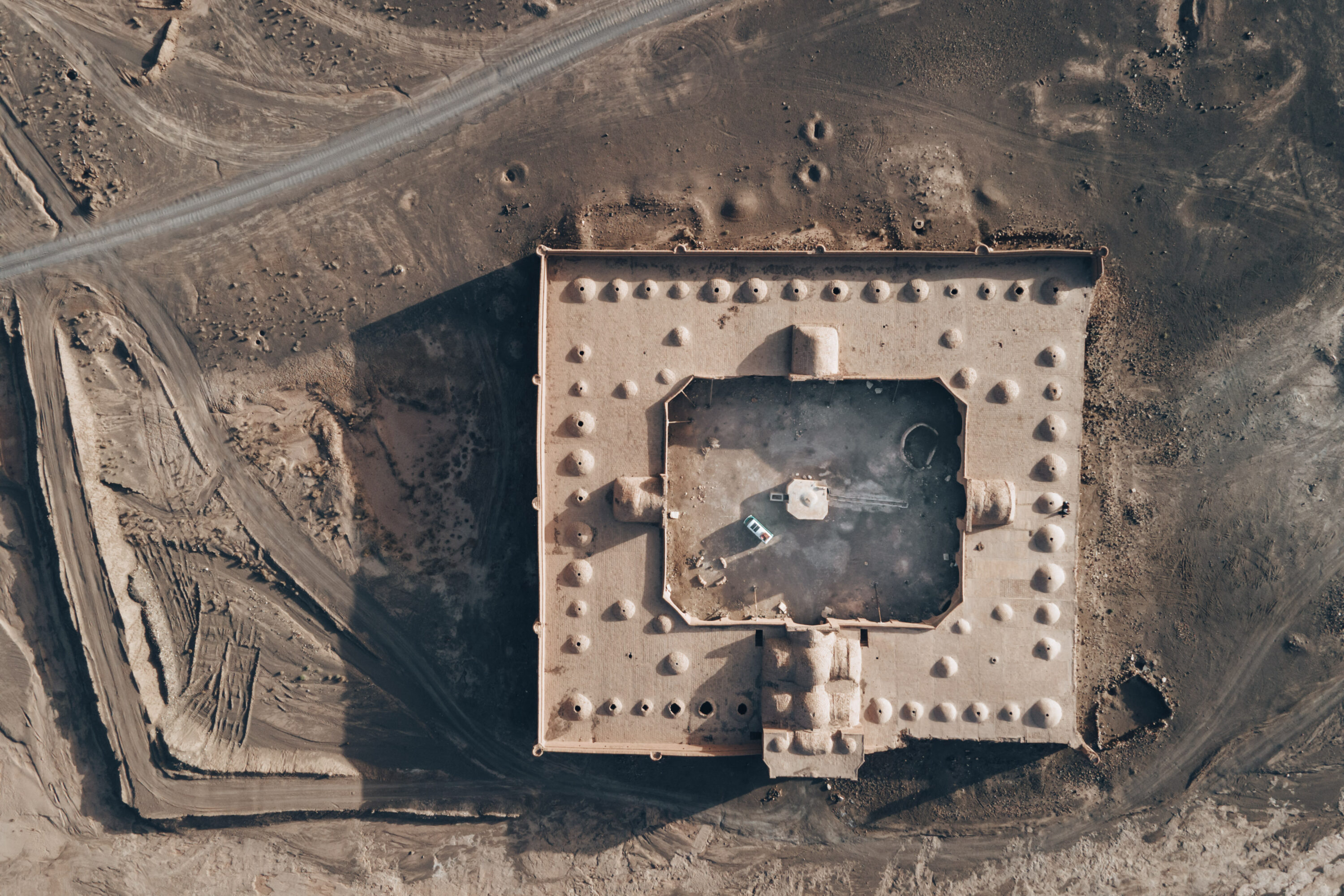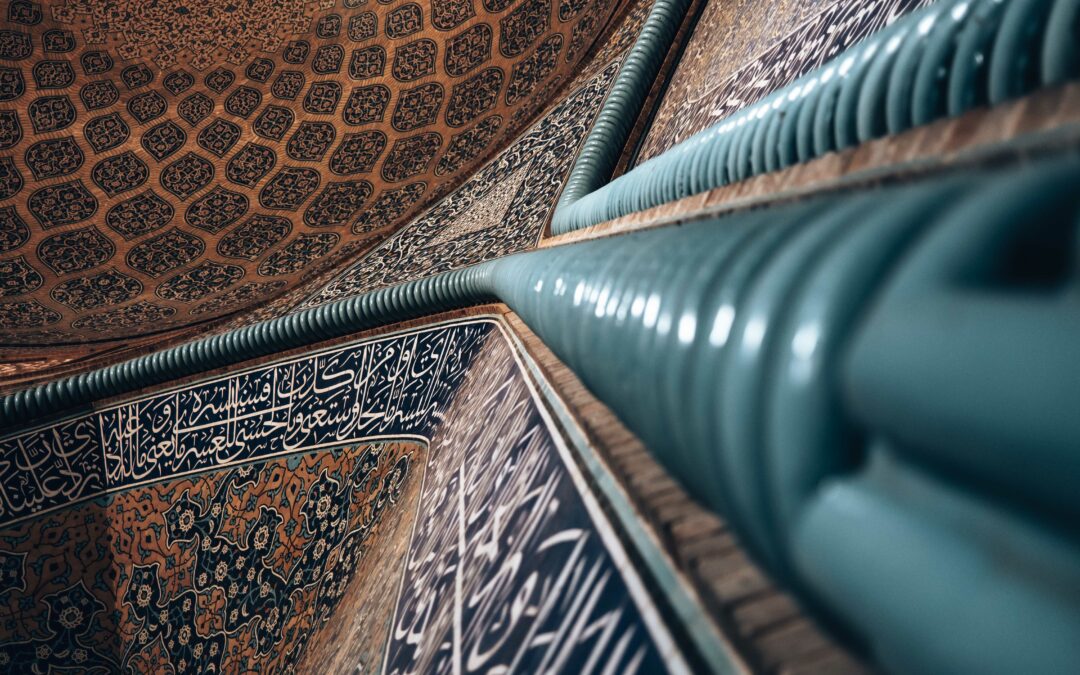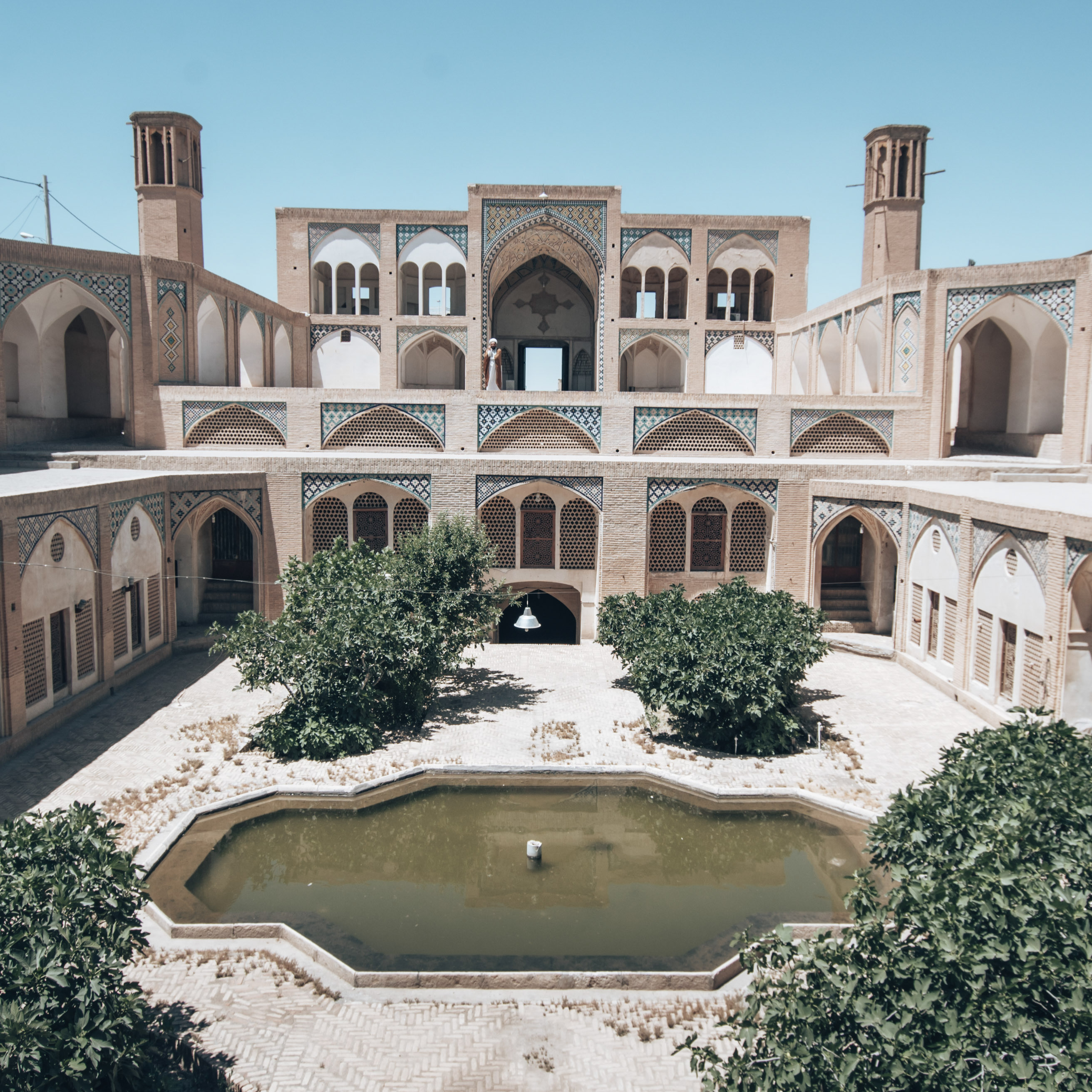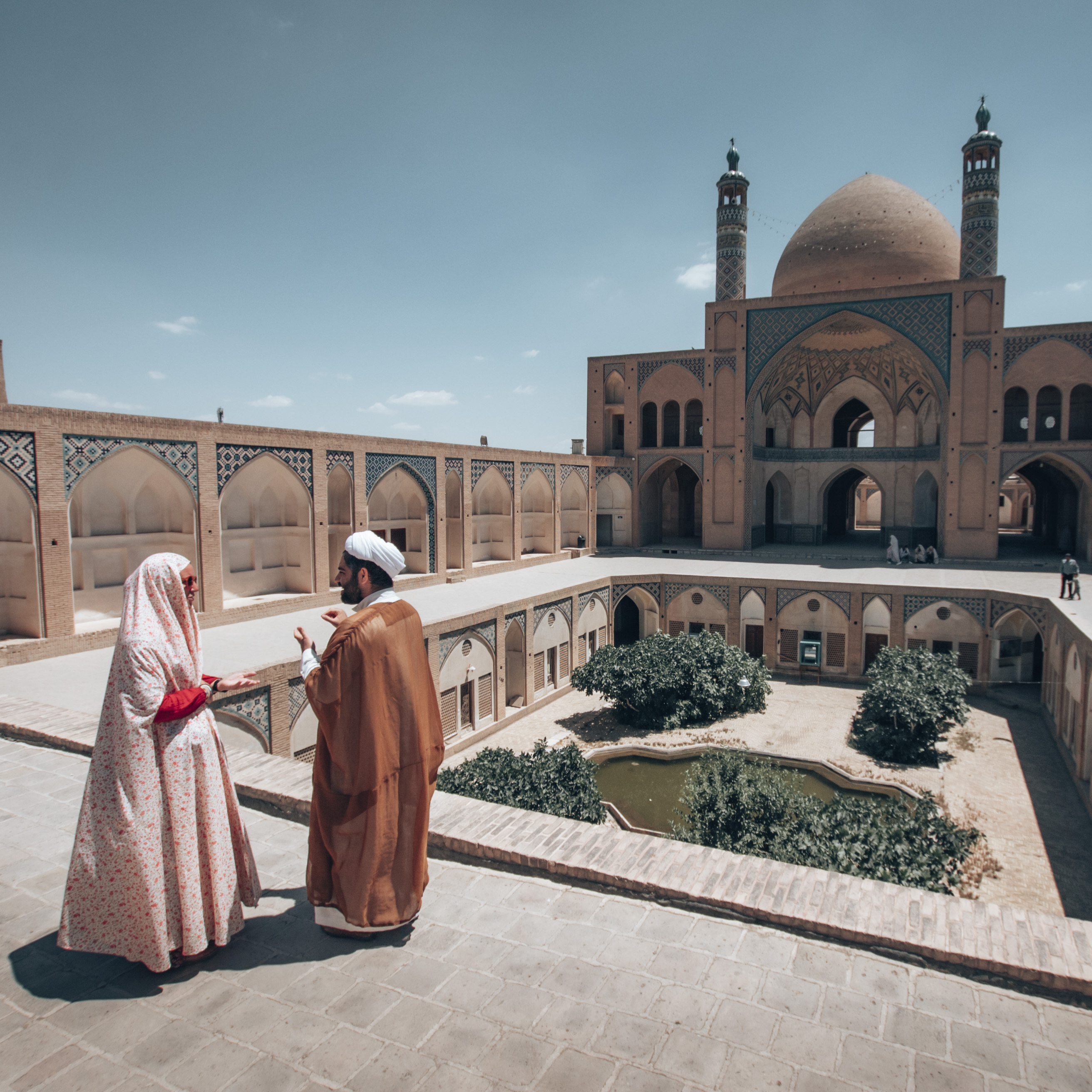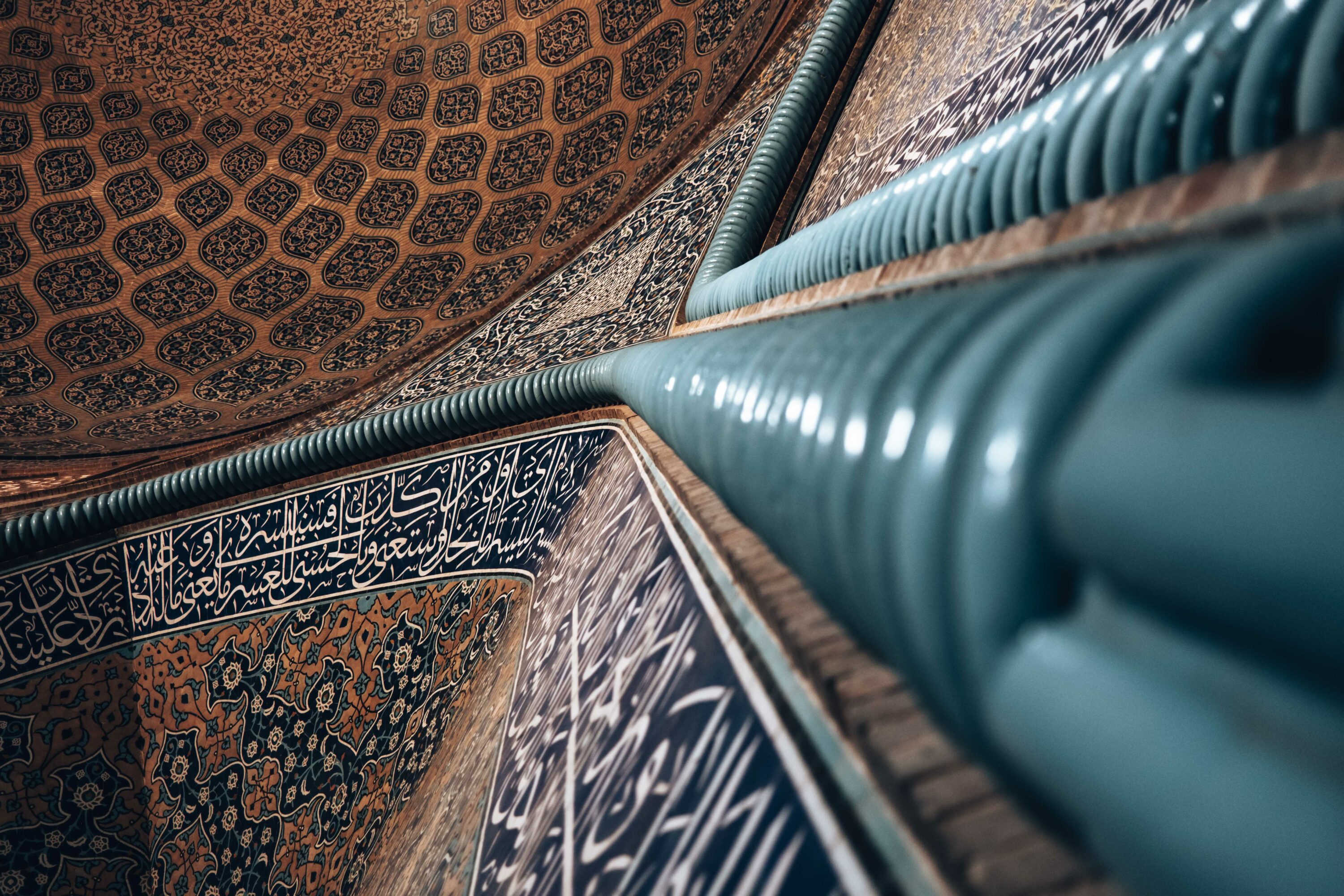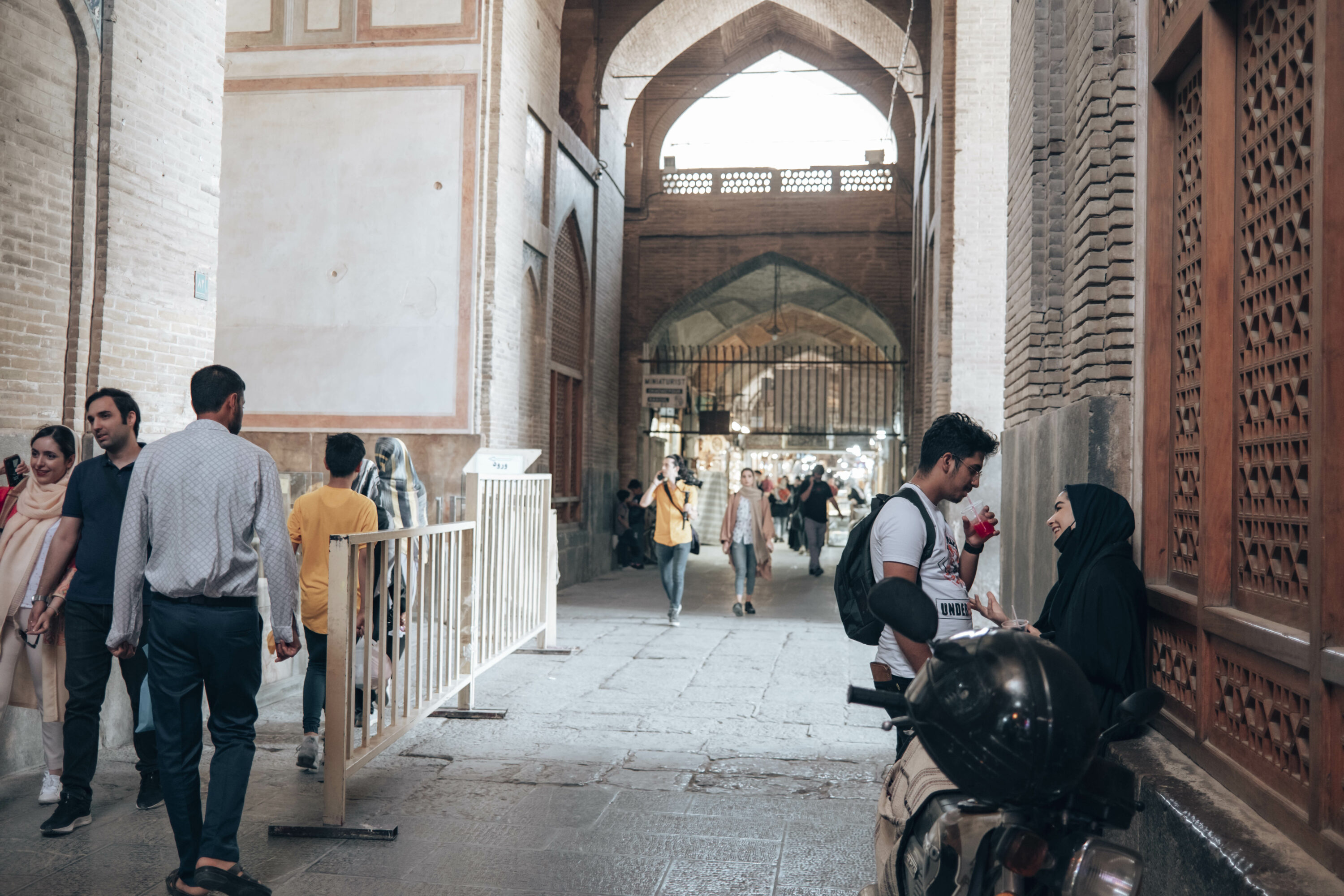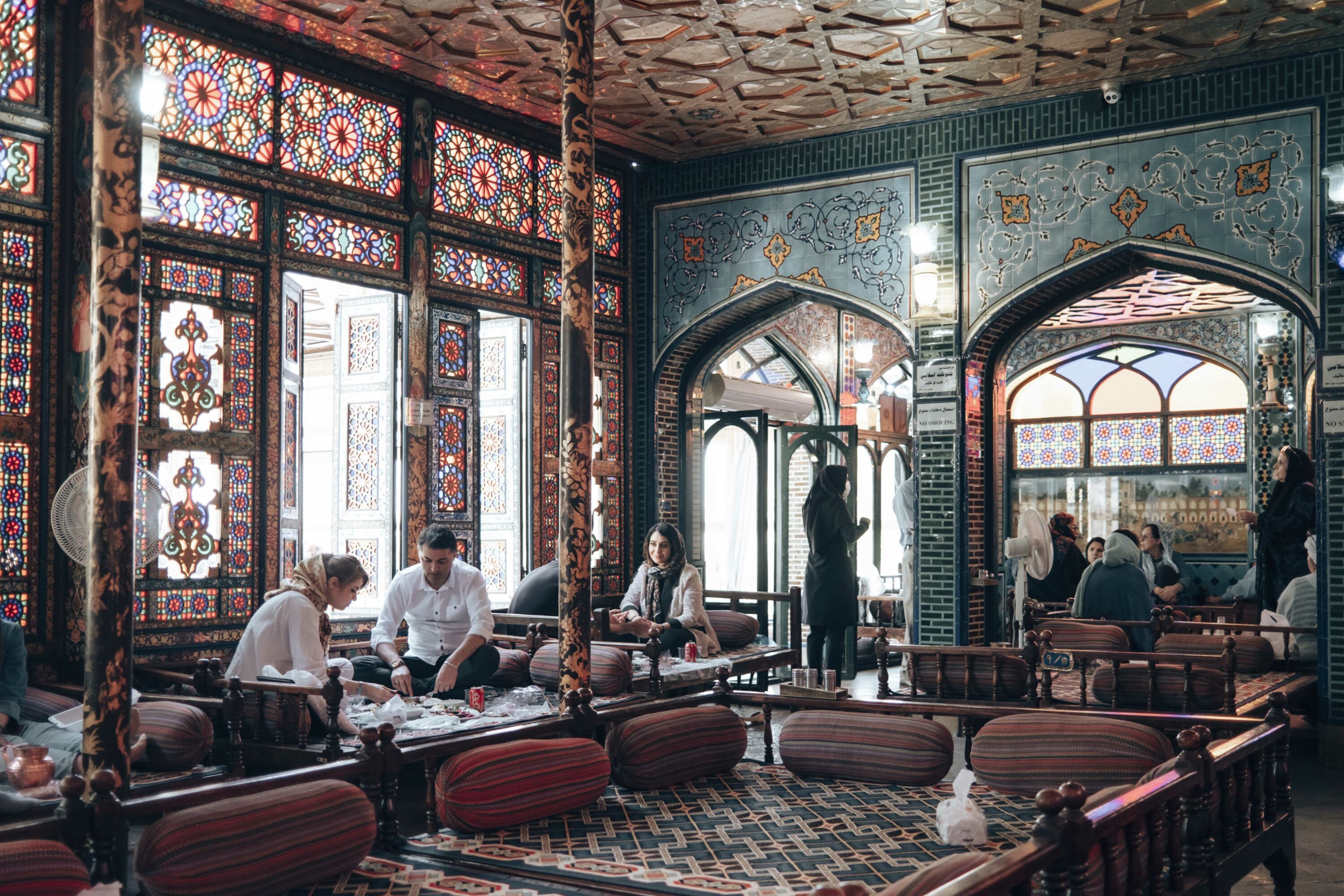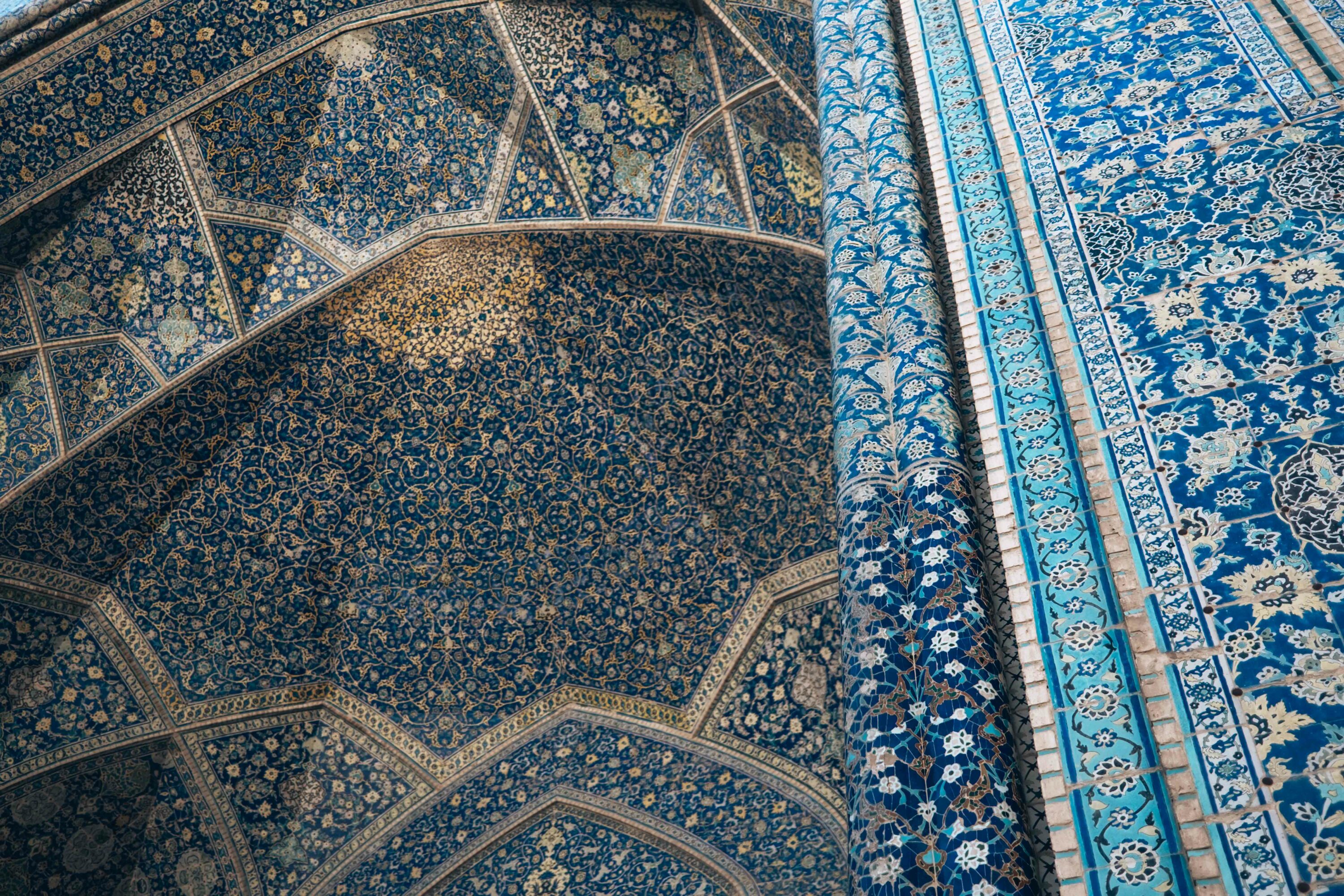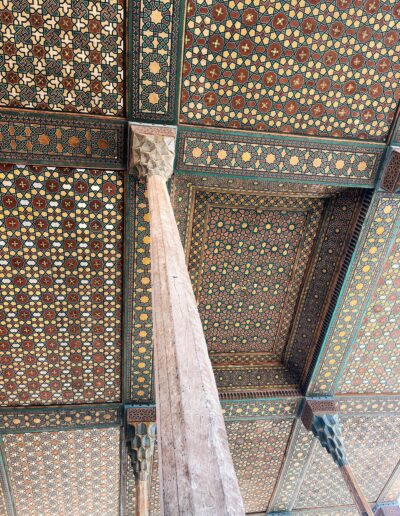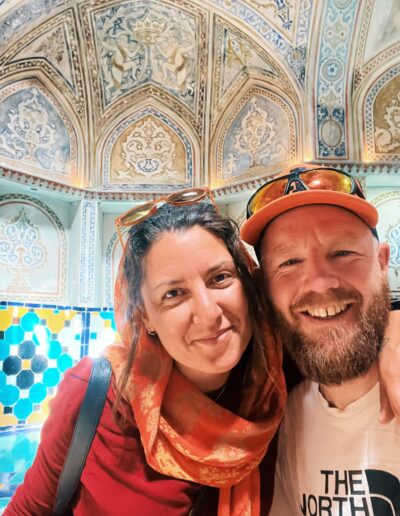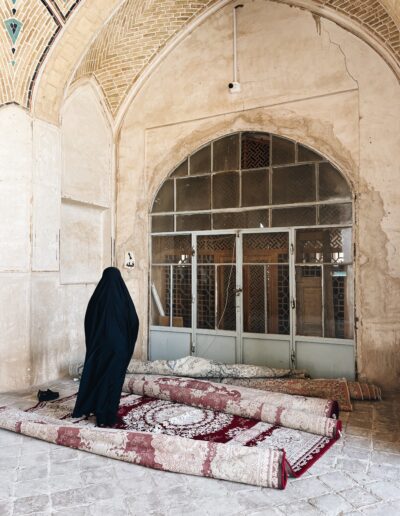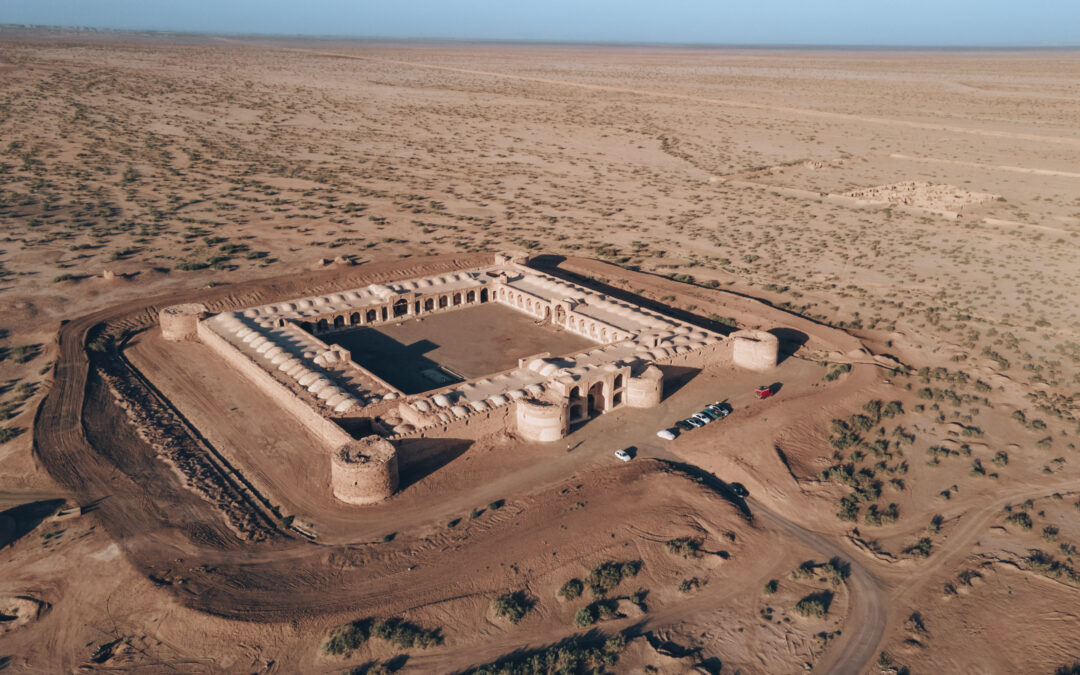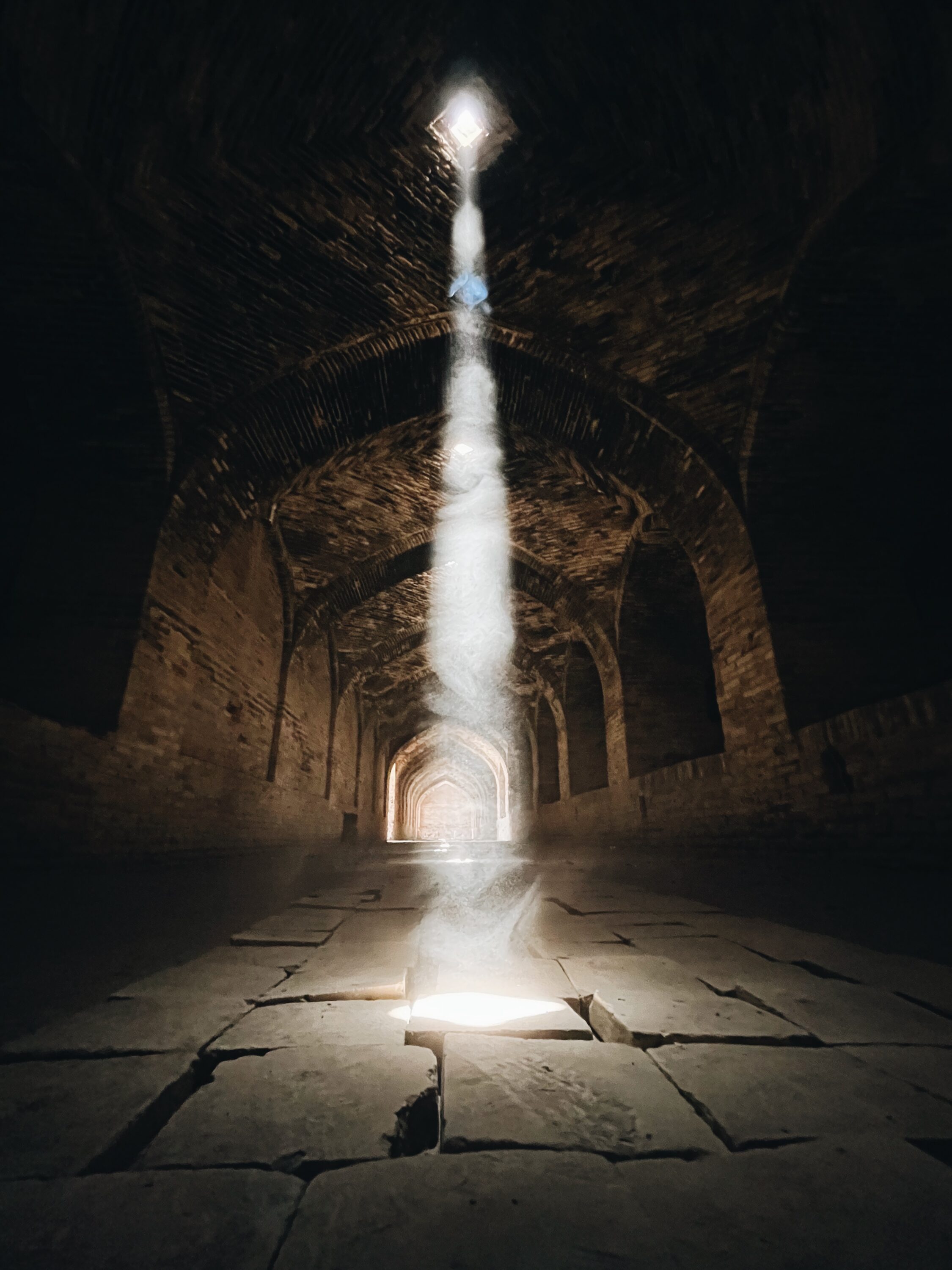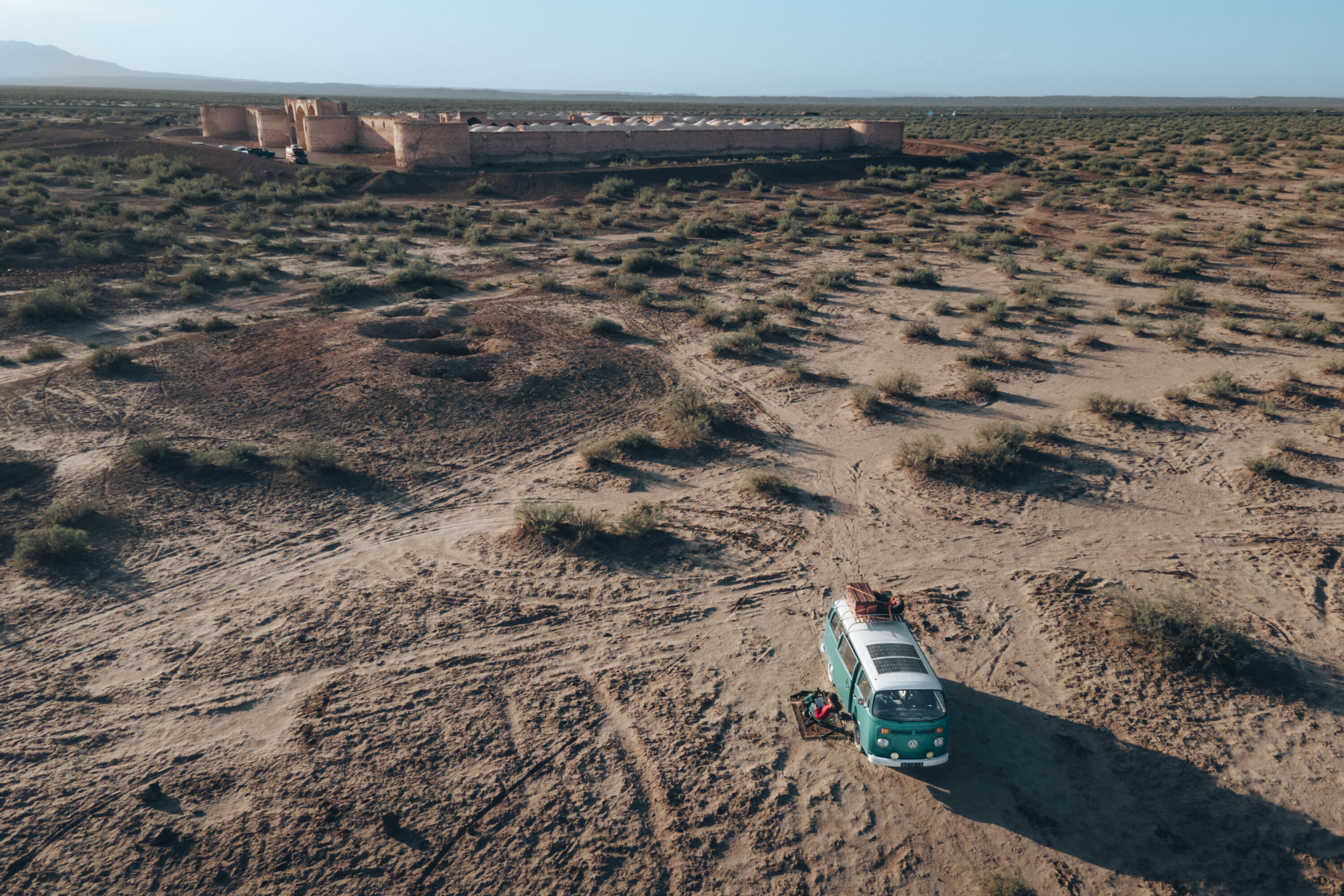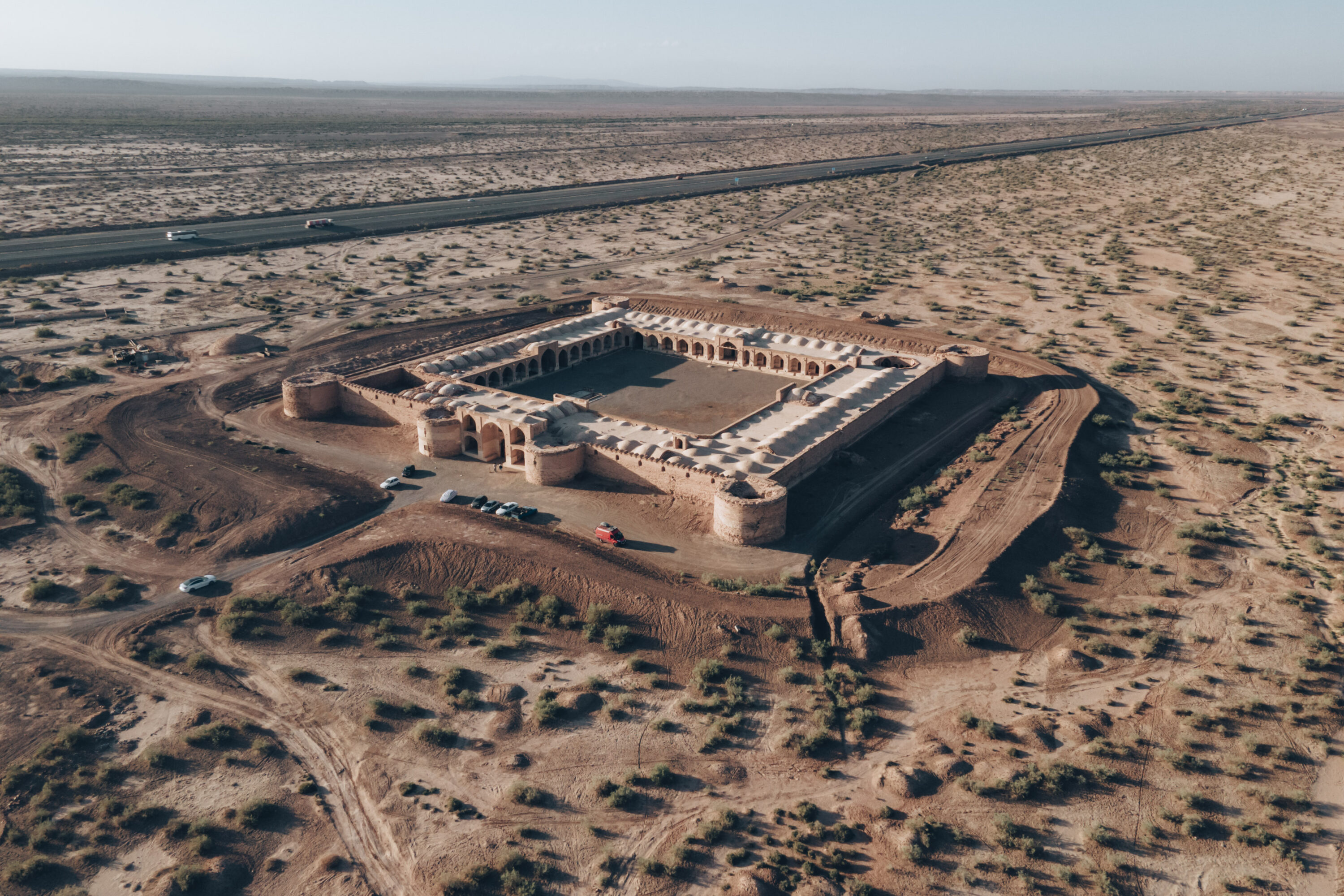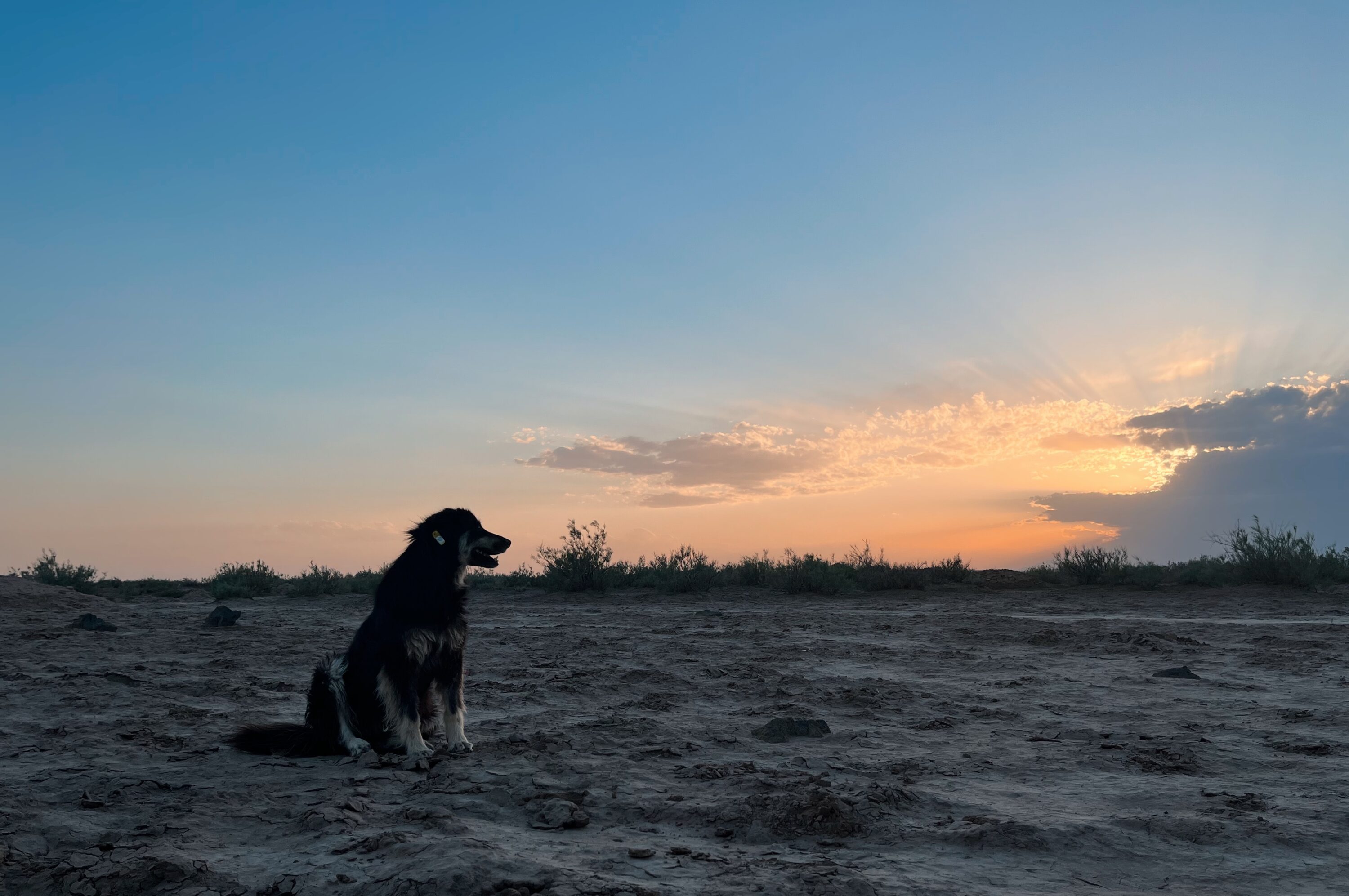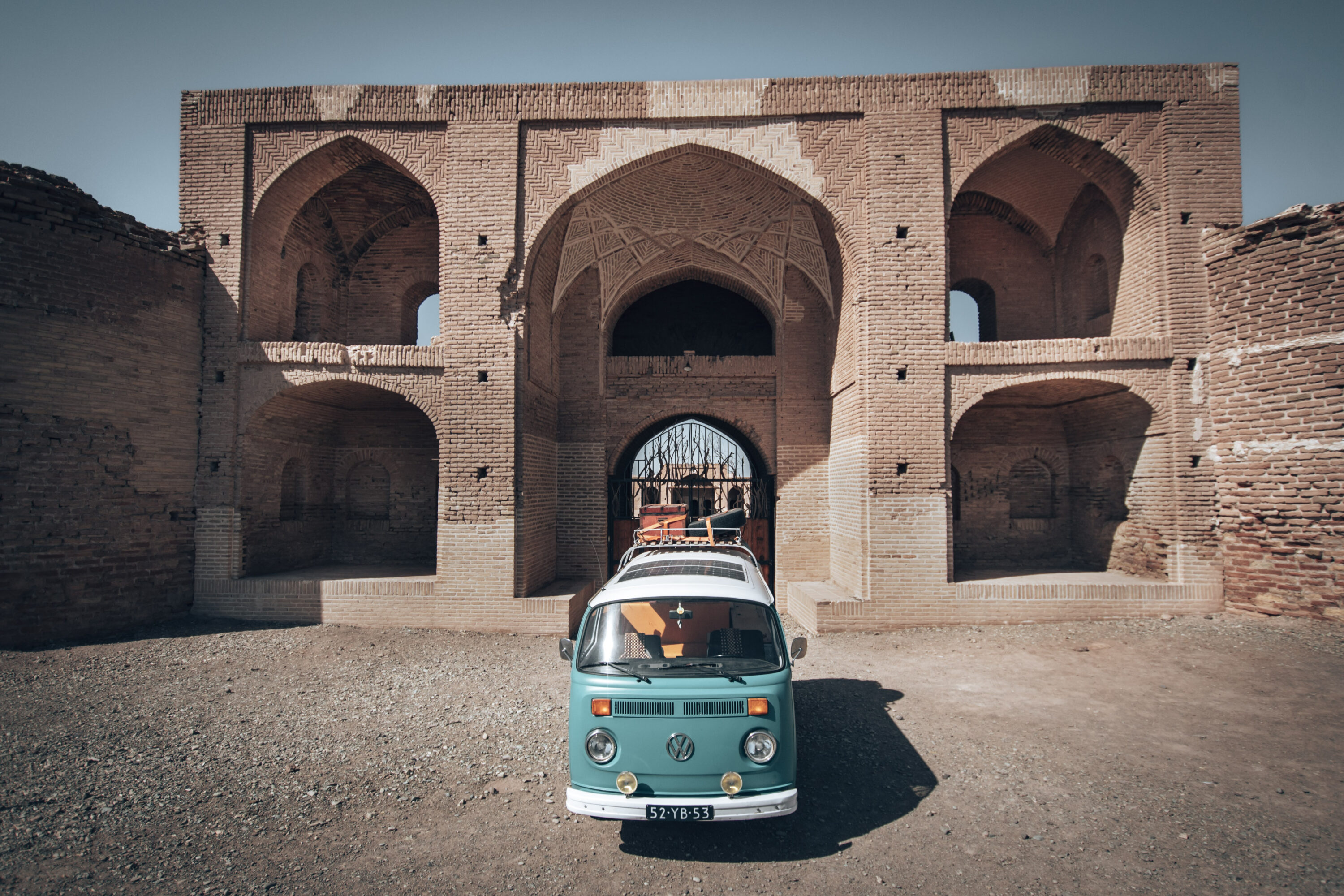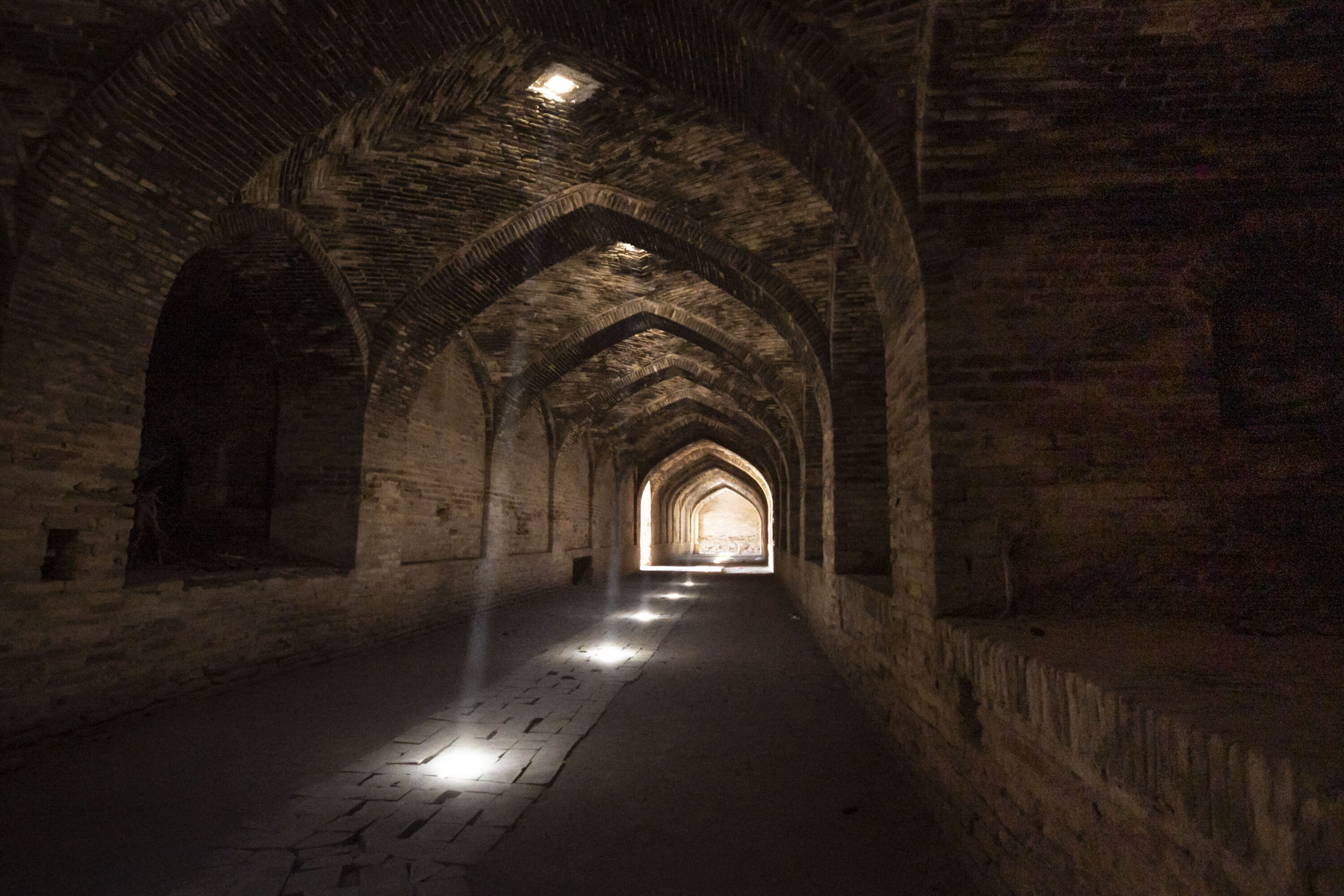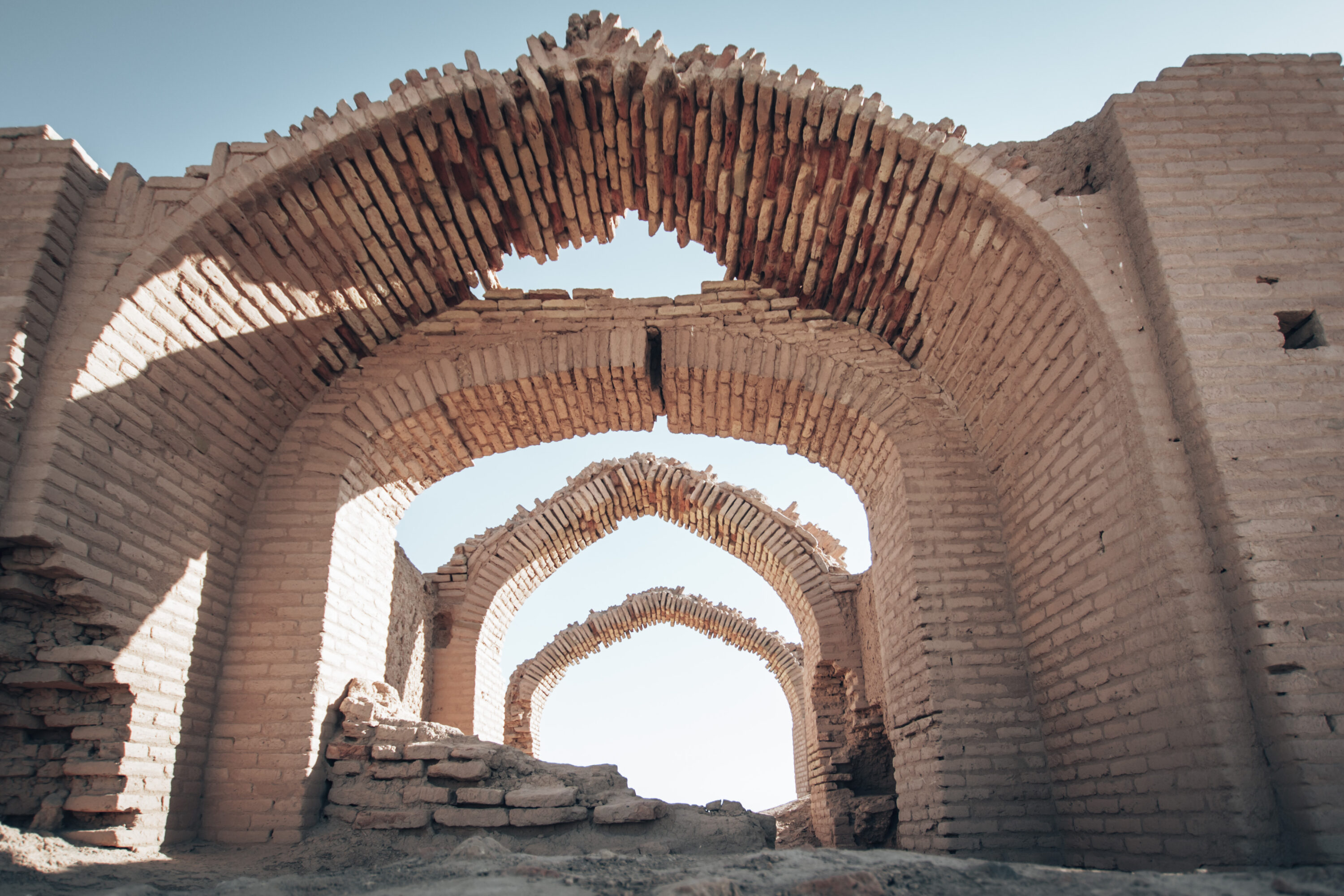Probably one of the most touristy spots of Pakistan, normally we would ignore places like this and skip them. However, friends told us it’s definitely worth it so here we are, sitting in a jeep on a steep mountain waiting for people to clear a landslide. It just...
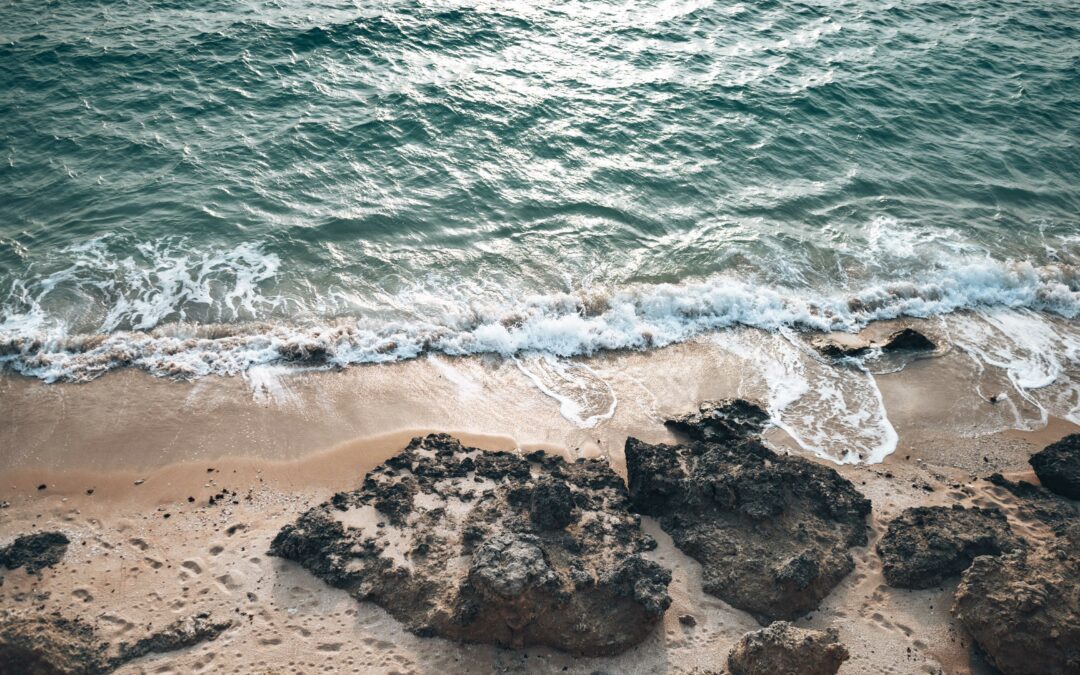
Iranian island life
Iranian island life
Iran is a country of many. Many people (80 million +), many rules and many landscapes. From the wet and green North to the dry and hot East. From colourful and crowded cities to humid and empty islands.
Arrival on Qeshm Island
From now on we travel off season in Iran. High season has officially ended by the 30th of May making us one of the very few insane travellers heading South. Not only are the shops closed during the hot hours of the day, which apparently is from 3am to 5pm. Also all the touristy shops that you’ll find alongside the beaches are deserted and the women with the beautiful masks, very known for this area, are nowhere to be find. Or the women are but the masks are not worn anymore. Another tourist trap.
Anyway, we made it – after some bureaucratic nonsense, being; paying for four copies of our passports, waiting for nothing really, copying our carnet de passage and so on, as if it’s a border crossing, we finally were on the boat to Qeshm island. The biggest Iranian island in the Persian Gulf. Had to wait another hour in the heat on the deck of the ship. In Iran they don’t know timetables, when the boat is full they depart. And even-though our boat was more full than Alexine is, they could fit three more cars on the boat. In the meanwhile we were waiting on deck without airco while everyone kept their hot engines running to enjoy their airco and laugh at us while overheating – I’m sure of that.
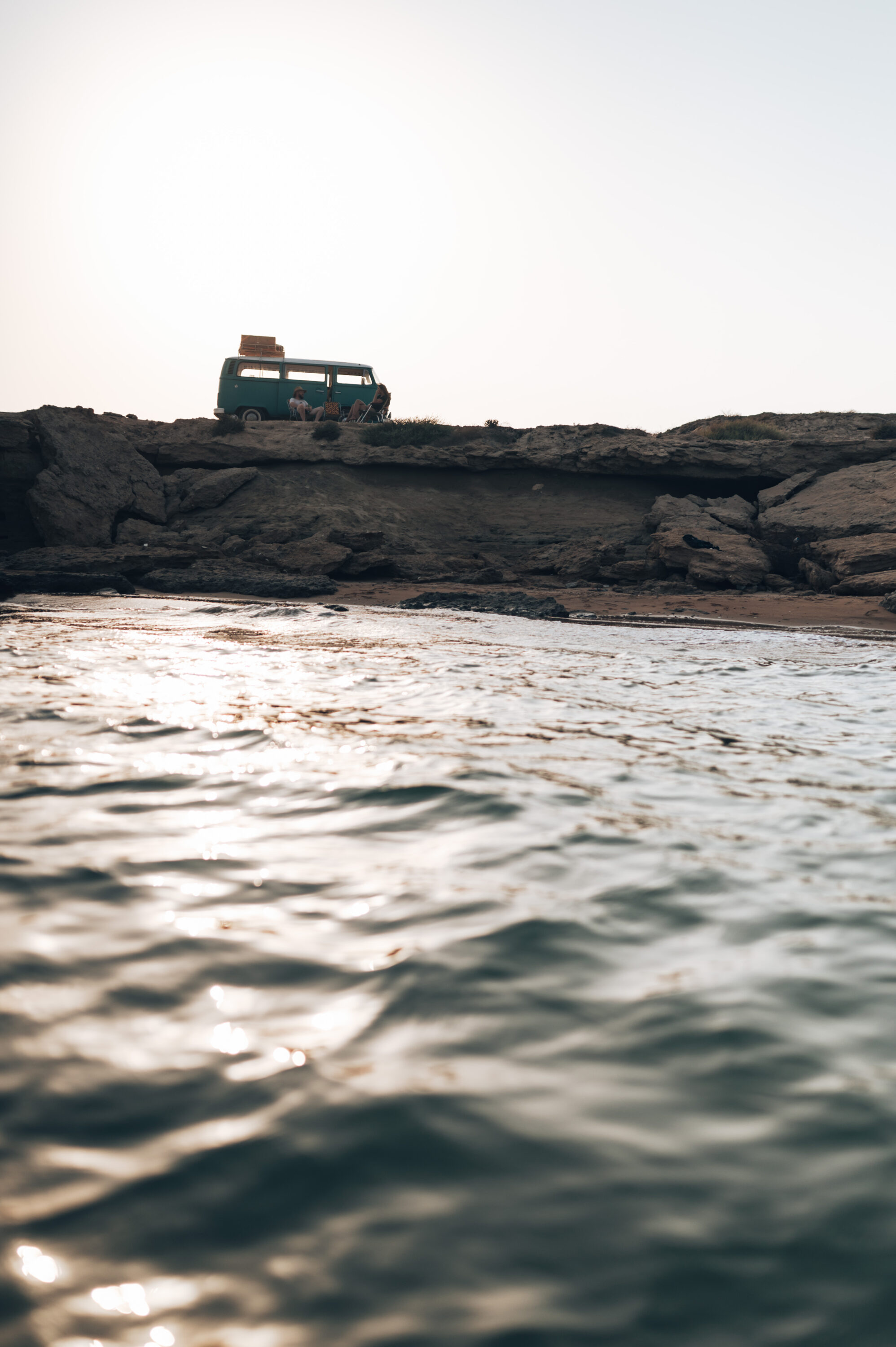
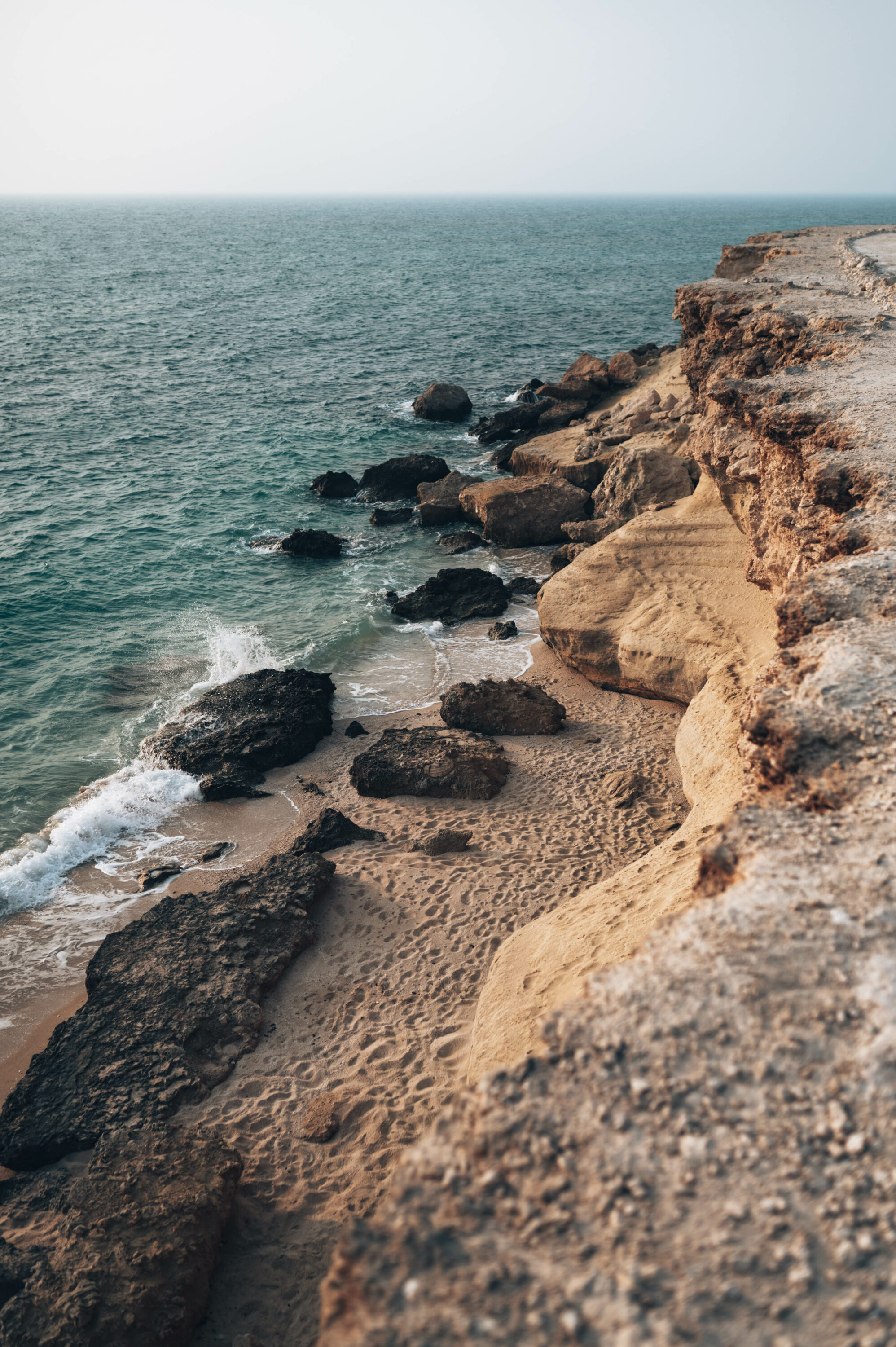
What heaven on Qeshm island looks like
It took us 1.5 hours to arrive on Qeshm island. But there we were, island life! As it’s off season and it’s hot life is nowhere to be found on the island. It looks like the entire place is deserted. No human, not even a fly is seen during the day. No shops open, no campsites or lodges where we can cool down, nothing! After what felt like hours we finally found heaven. I’m sure heaven looks like this; coolness welcomes us when entering, rows of canned food, sweets, chocolate. Ice cream in the fridge and there it is; Heineken 0%! We have died in the Qeshm humidity and arrived in heaven!
We decided to spend our afternoon in the supermarket, acting like we couldn’t make our choice about how many Heinekens we would bring to justify our overstay here. And we are not huge fans of Heineken, I mean there are over 900(!!) breweries in The Netherlands and Heineken might be the most famous but definitely not the best. However, after months of bad juicy 0% “beers” drinking a good Heineken 0% is a blessing. And now we sound like alcoholics, which we are not, but we do love an ice cold beer. Or water. Cause my oh my do we drink a lot a lot of water. Luckily water is found at any mosque (ice cold as well) and even at some other places they put taps where you can refill your waterbottle. There are also rain water tanks built everywhere on the island. Beautiful architecture where rainwater is kept, as the islands communities depend on these as a primary source of drinking water. However, rainwater is only as clean as it’s container and when we looked inside one we could find plastic bags, bottles and lots of death insects in the reservoirs. So, understandably we just enjoyed the architecture of these impressive buildings and had our cans filled with ice cold water from the mosques.
After our delighted overstay at the supermarket we found shade at a tiny tree at the beach. Here we decided to wait out the heat by reading a book, relax and drink our first Heineken, because we couldn’t wait.
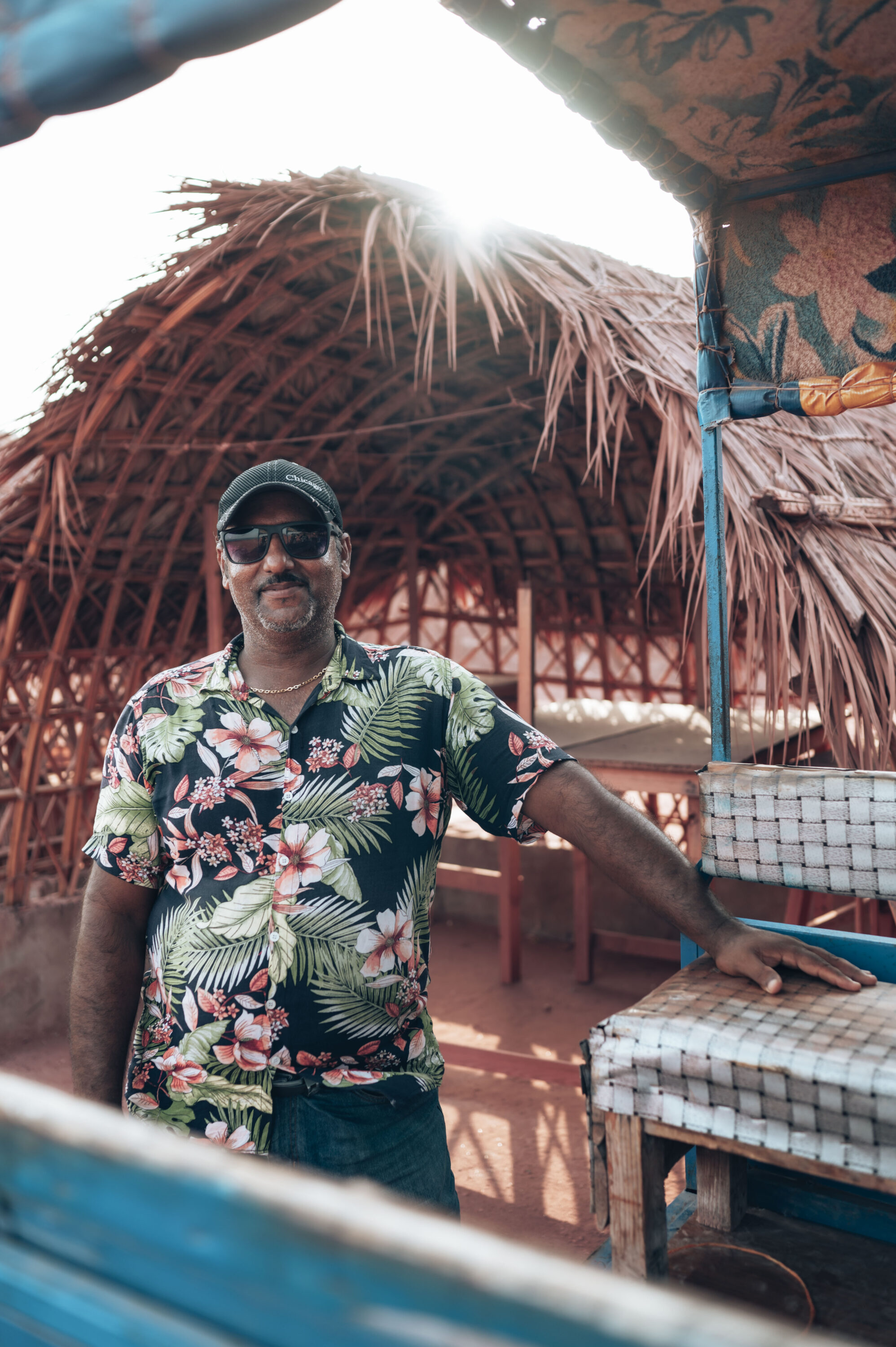
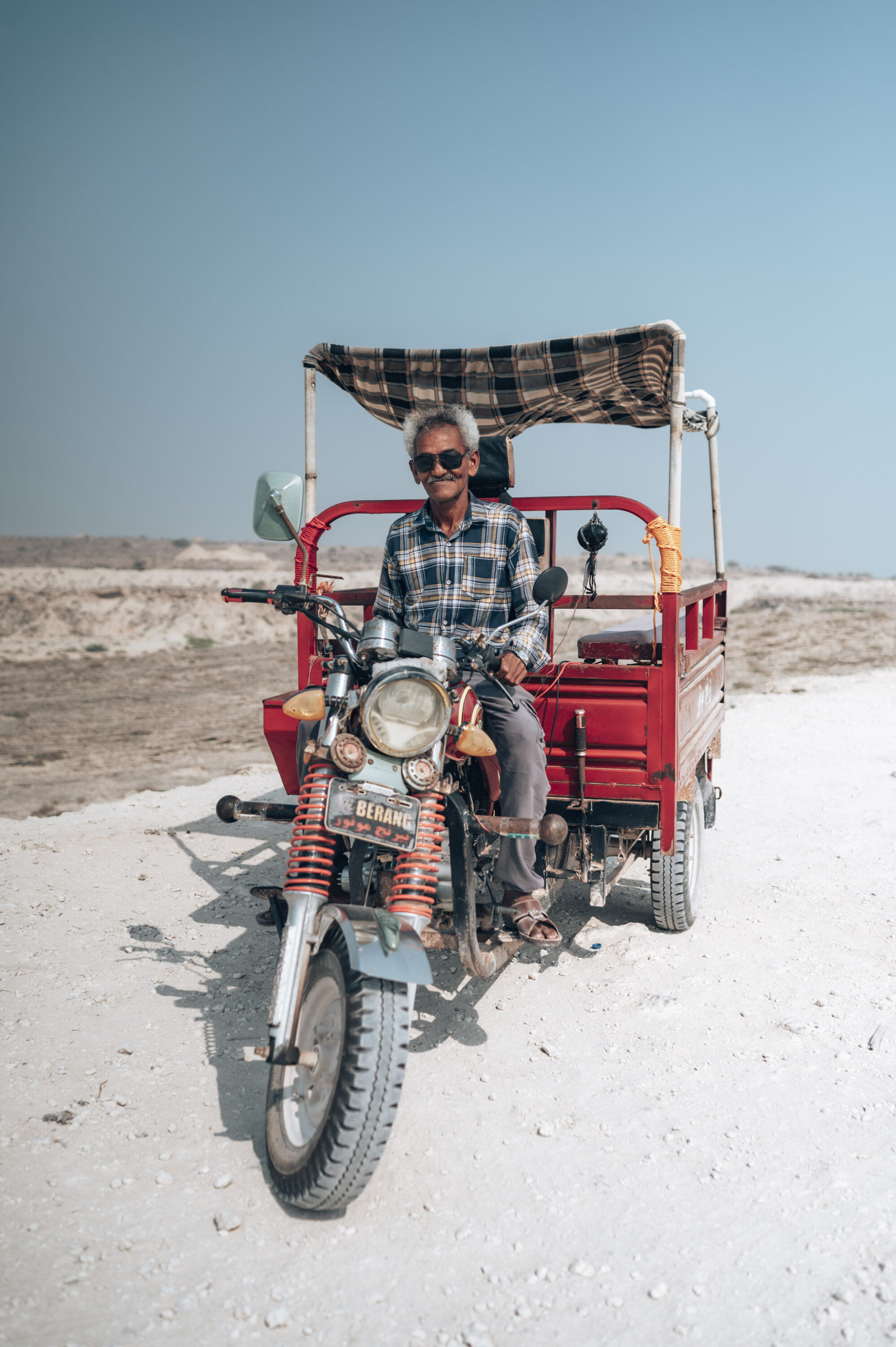
Travelling together
A couple of hours later we were joined by our lovely fellow travel companions Joni & Anton who we’ve been travelling with on and off since our arrival in Iran. We always said we wouldn’t be able to travel with another couple for very long because of the differences of routes, interests and wanting to be alone. However, sometimes you meet people that you get along with so well, you even plan to meet each other here and there. Joni & Anton are definitely those travellers we enjoy spending time with rather than saying goodbye. For now we’ve only explored cities together, this time we would be in nature. Cooking together, hiking together, swimming together. Laughing about the differences in our languages, learning from each other (they are very creative people, making handicraft with ceramics and wood. Their interest in things is endless, from history to language and handicraft to my love for caravanserais. Their positivity and curiosity is inspiring and contagious.
So, you can imagine we spend the rest of our time on Qeshm together, even though they wanted to leave on multiple occasions (because of the heat not because of us) we had so much fun. We hiked a canyon and were given a shower by a local who burried his shampoo and other treasures in the gorge for him to take a shower himself. We then went to explore the longest salt cave in the world, which was beautiful! Afterwards we had an ice cold dip in the sea in bikini (sssssht) and made a fire at night (as if it wasn’t warm enough). We had coffee and speculaas together, also sweat together and talked on our walki talkis while driving in our vans.
We went to Hengam island for a dive and stayed the night at wonderful Alaleh. Were stalked by the police while snorkelling and almost crashed with a tuktuk. So much fun in a couple of days it’s almost indescribable. When we think of Iran we certainly think of the heat, of the hospitality of Iranians, of the beautiful architecture and the incredible landscapes. But we also think of Joni & Anton, with whom we had so much fun. And you can understand from my writing that Qeshm was the end of our adventure together. While we continued island hopping to Hormuz they moved to Shiraz and more North. While we are driving East they are driving back home. All good things come to an end, a temporarily one because there are over 1500 breweries in both our countries combined 😉
So far our ‘love letter’ to our funloving explorers. Back to Qeshm island. After being in nature and surrounded by nothing but razor sharp rocks and seawater full with beautiful turtles, we headed to Qeshm city where it was even more humid than before. Here we found heaven again, not in a supermarket but in a cafe that resembled a pub, or at least came closest to what we call a pub. With music suiting our taste (system of a down, led zeppelin, Metallica), good food and pool table. At night we cheated on Alexine and booked a room in a hotel. Taking a shower after more than a week was quite welcome, sleeping in airco a necessity.
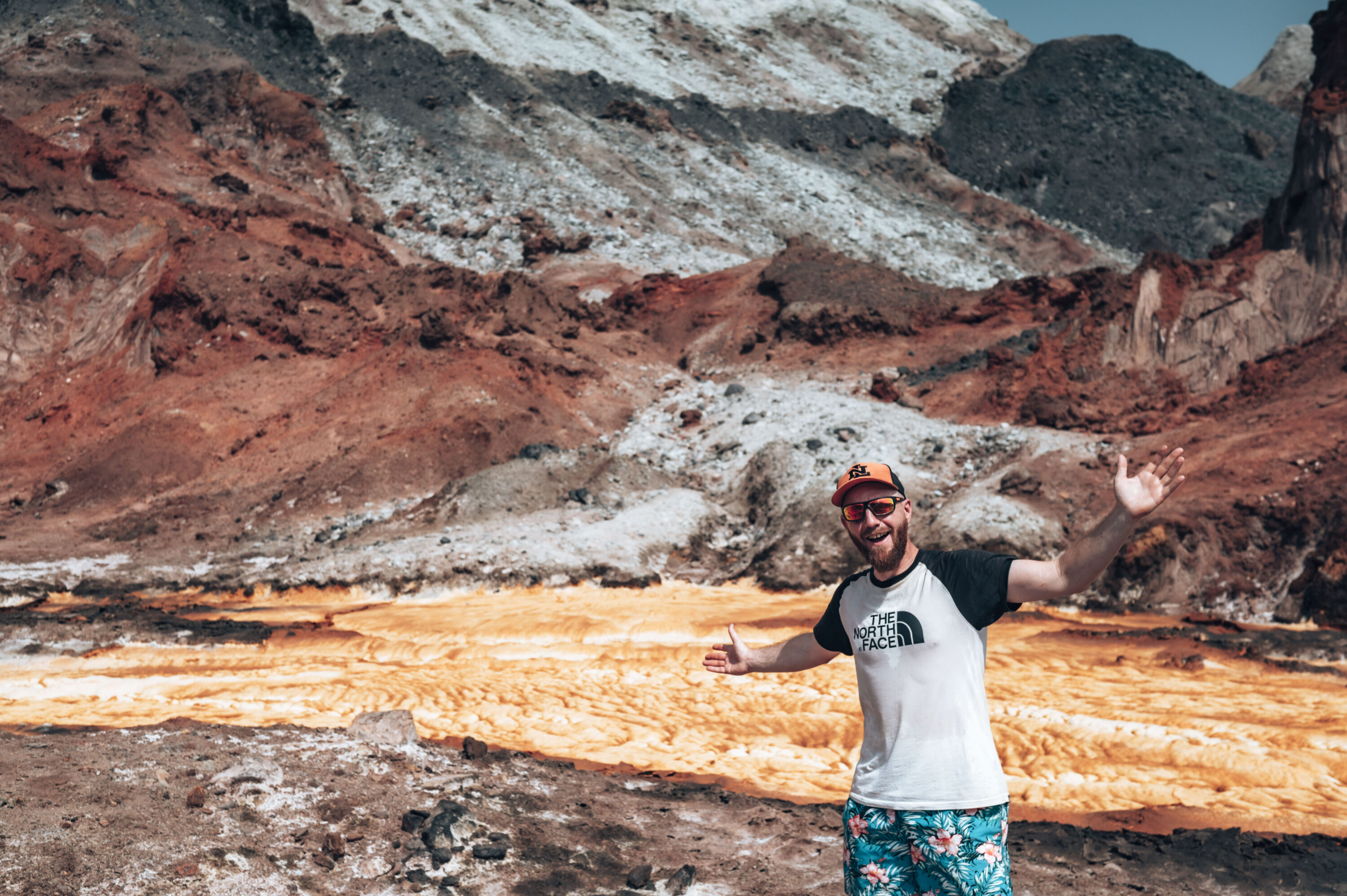
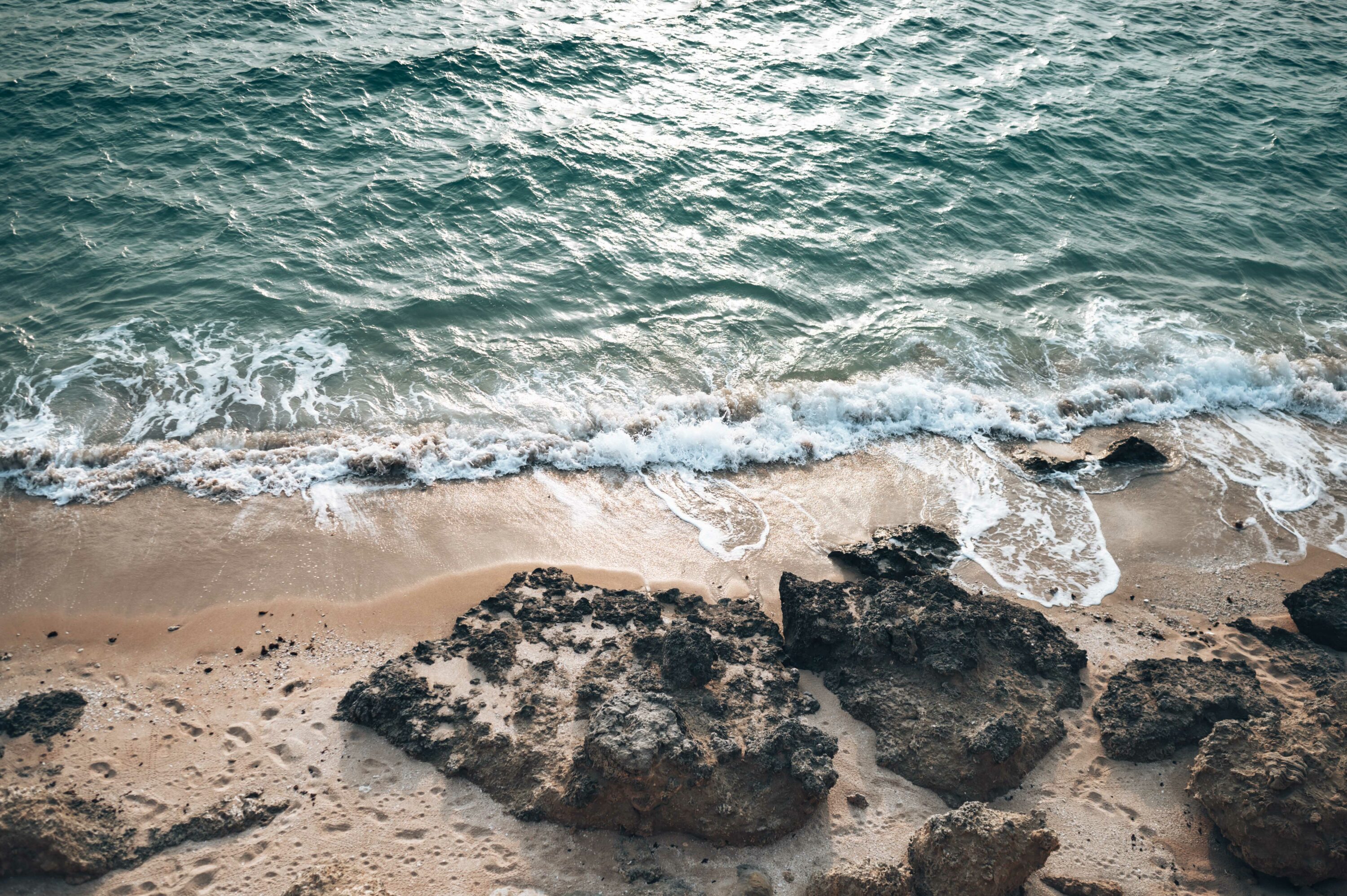
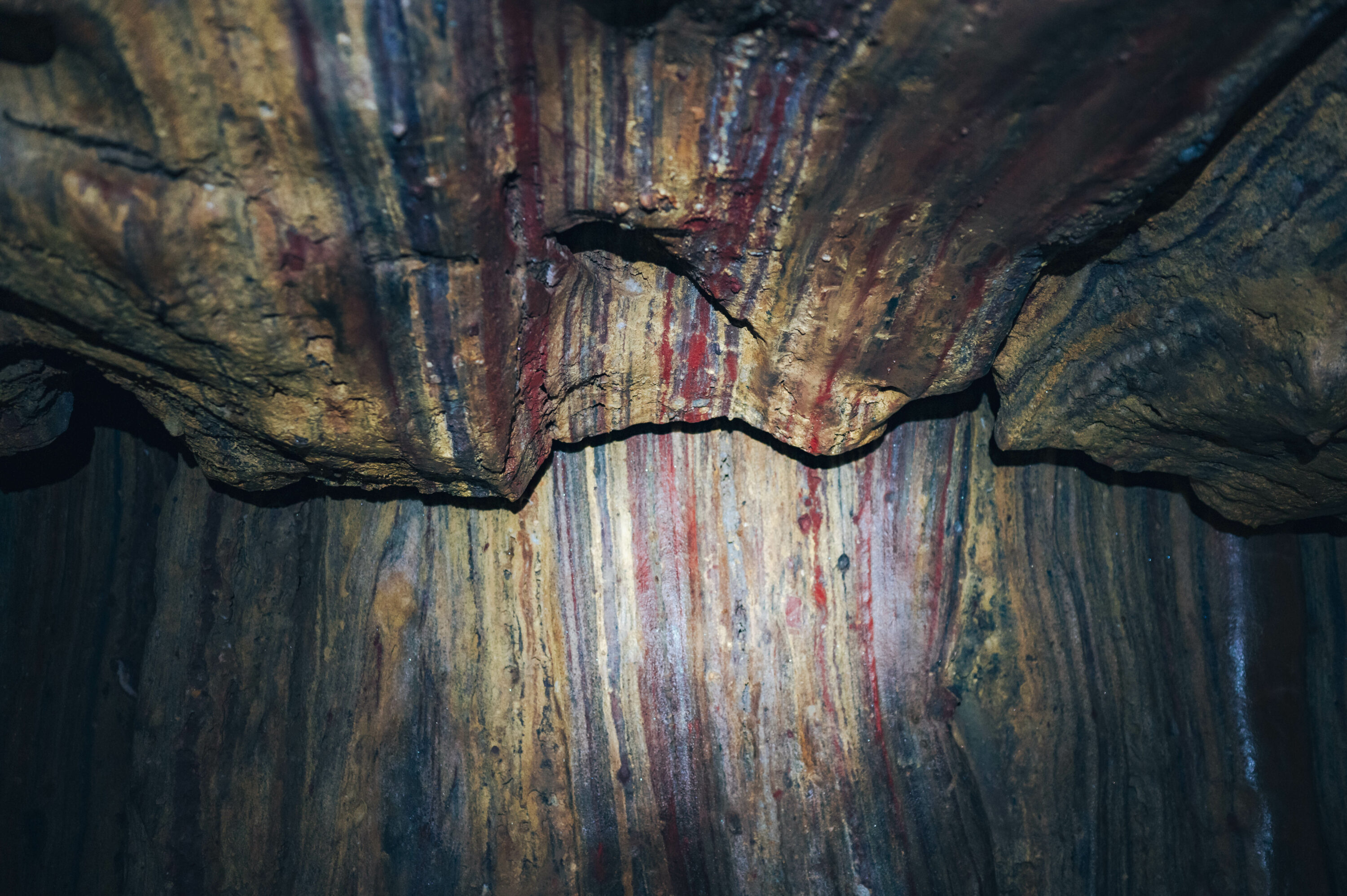
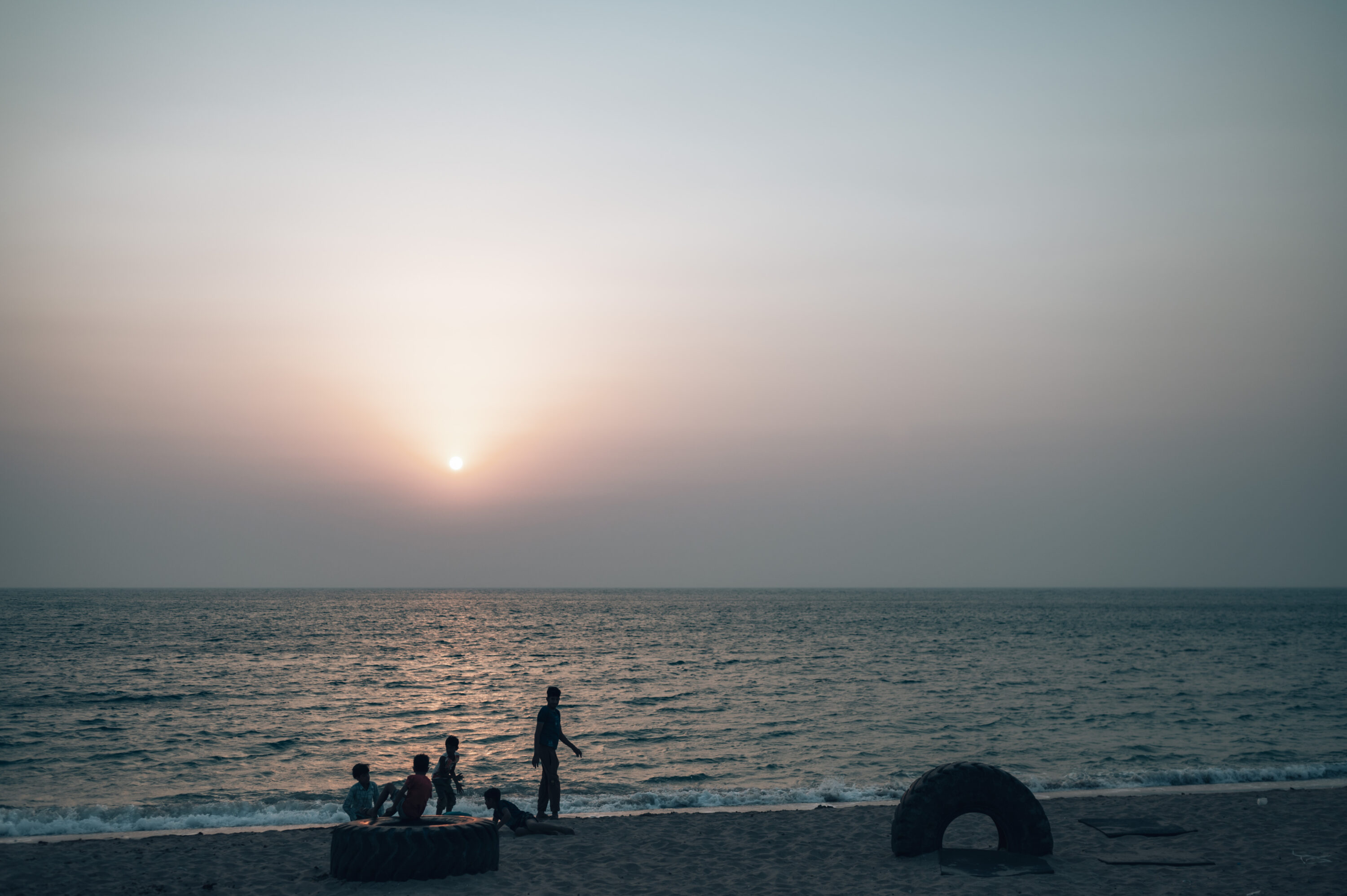
A visit to Hormuz island
Time to visit the island of rainbow colours, of no cars and almost no tourists. It was hot, hot and hot. But we managed to get the boat to Hormuz, find ourselves a hostel and rent a motorbike to explore the island. We got to see rainbow mountains, a red beach, a saffron valley that definitely inspired the Wizard of Oz stories and marvelled at the most colourful cave we have ever seen! We drove alongside mountains as white as snow, but instead being salt. Had problems with finding a gasstation thus run out of gas but luckily found a very nice gentleman offering us 1.5 liter of gasoline from his own motorcycle without wanting our money. Taarof or hospitality? We still don’t recognise the difference so we accepted his gesture and thanked him multiple times.
In the evening we drank a beer with the only other tourist on the island Valentine from France who backpacks without using a plane. We have met quite a few travellers on our route East who travel without wanting to use airplanes. A good development we think. It’s not only better for the planet but also for truly immersing into a culture and exploring and understanding it. Taking a bus, meeting people, spending money locally. For us it exists of getting gasoline at places so remote people wonder from which alien planet we come from, meeting people while picknicking or staying overnight at places we thought remote but are bustling with people at night and being waved at while on the road. Even when we have to stop for Alexine to cool down people offer us food, water and help. And that’s the thing with travelling overland, you meet people, see places really and take it slow. Hopping from airport to airport, seeing the insight of too many planes and spend hours in duty free shops is just not doing the trick. But it does get you to places quickly and with the small amount of time we have to explore places it’s easy and convenient to take the plane.
On Hormuz we met another guy. From Austria, who travels from Austria to Australia overland. By means of public transport and hitchhiking. Australia was once New Holland, when the Dutch conquered, killed and savages the island. However, I never realised the similarity between the names of Austria and Australia. Of course in their own language there is no similarity (Ostreich and Australia) so did the British, when they took over savaging the largest island of the world, see a resemblance? I have never been to Australia so can’t compare. Well, for this Austrian traveller it doesn’t matter, he has a goal and no end date.
We also have a goal, and an end date. But we’re either going to surpass the end date or fail to achieve our goal, that being China. As China is still closed due to Corona, or dictatorship, we probably won’t reach our final destination. But, as many smart people before us said, it’s not the destination that matters but the journey. And that journey is in full swing. On Hormuz island at the moment, enjoying a nice falafel bread with a nice breeze as desert. Alright alright and an ice cream.
We stayed on the island for one day, and that’s enough. You get to see the most beautiful spots and get to relax during the day because it’s too hot to do anything anyway.
The next day we said sweaty island life goodbye to continue our sweaty lifestyle, with the only shower being in the salty water in the sea and for me even with my clothes on, on the mainland of Iran. We drove quite a while to arrive at one of our most beautiful wild camping spots in Iran. One where we had the beach to ourselves (and it’s waste), swam with turtles and stingrays and had a fabulous sunset where only the waves made a sound that the mountains swallowed in silence.
Love, Milene & Yuri
Check our latest blogs
The way to Fairy Meadows
Nomads & Bears
Exploring one of the highest plains of the world including the nomads that roam these lands.
Bunch of Creatives
Our group is expanding. From travelling with the two of us to exploring with five. A bunch of creatives on tour.
